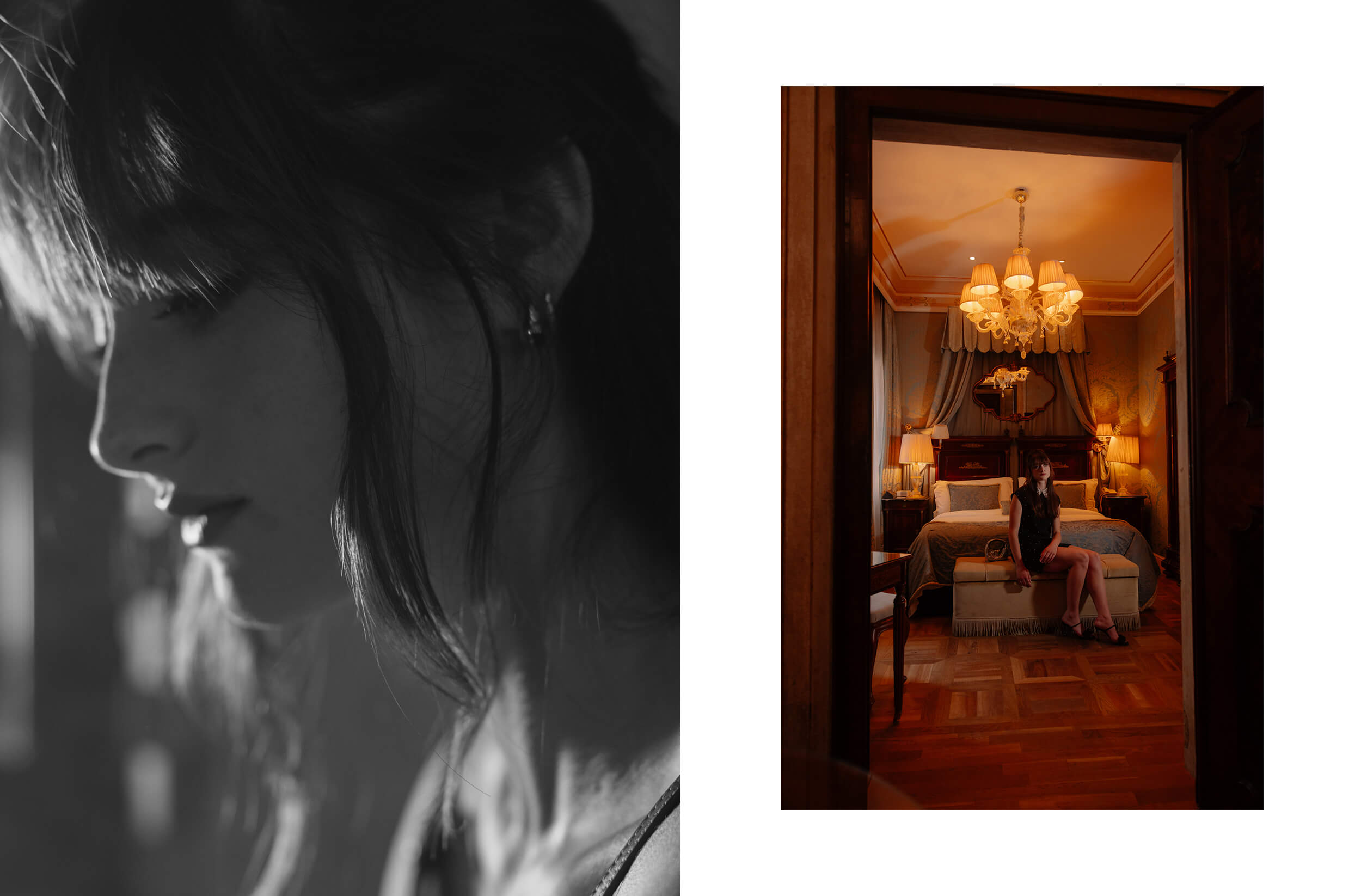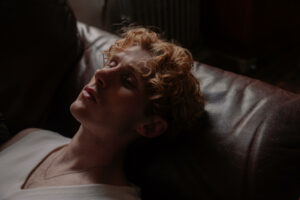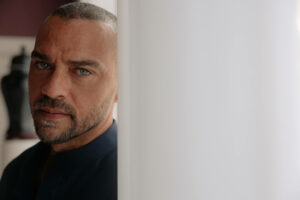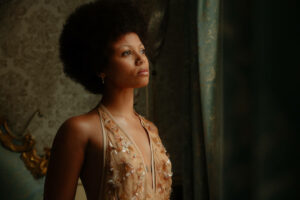Raffey Cassidy, one of the best rising talents in modern cinema, is not only one of the protagonists of Brady Corbet’s critically acclaimed film “The Brutalist”, but also one of the voices and representatives of this year’s Miu Miu Women’s Tales.
For our October Cover Story, Raffey reflects perfectly what we, at The Italian Rêve, aim at telling. She is an icon of being in love with what she does and her words are always inspiring.
We talked with her about her long-standing relationship with the iconic fashion house and the evolution of her career since her last visit to Venice, when we met for the very first time and fell in love with her. Surrounded by the unique vibes of the Hotel Danieli, we chatted about connections, conversations, and the evolving relationship with fashion and acting. And she told us about working with “The Brutalist”‘s visionary director, Brady Corbet, and connecting with the young Jewish-Hungarian Zsófia, sharing insights on the responsibility of telling real-life stories.
Raffey gives us a glimpse into the thoughtful and passionate nature of her approach to cinema and we can’t wait to connect with her again, and again.
You have already been here in Venice with Miu Miu. How have things changed for you and how do you feel today compared to last time?
I’ve been really lucky in that each time I’ve been to Venice with different films, I’ve always been involved with Miu Miu’s programs, which I cherish because Miu Miu Women’s Tales is so special. I love chatting about film and what’s going on in the industry – it’s a place where you can have a conversation with other women on a long-form, which is quite rare.
Miu Miu has been my constant, and a seminal relationship in my life and career.
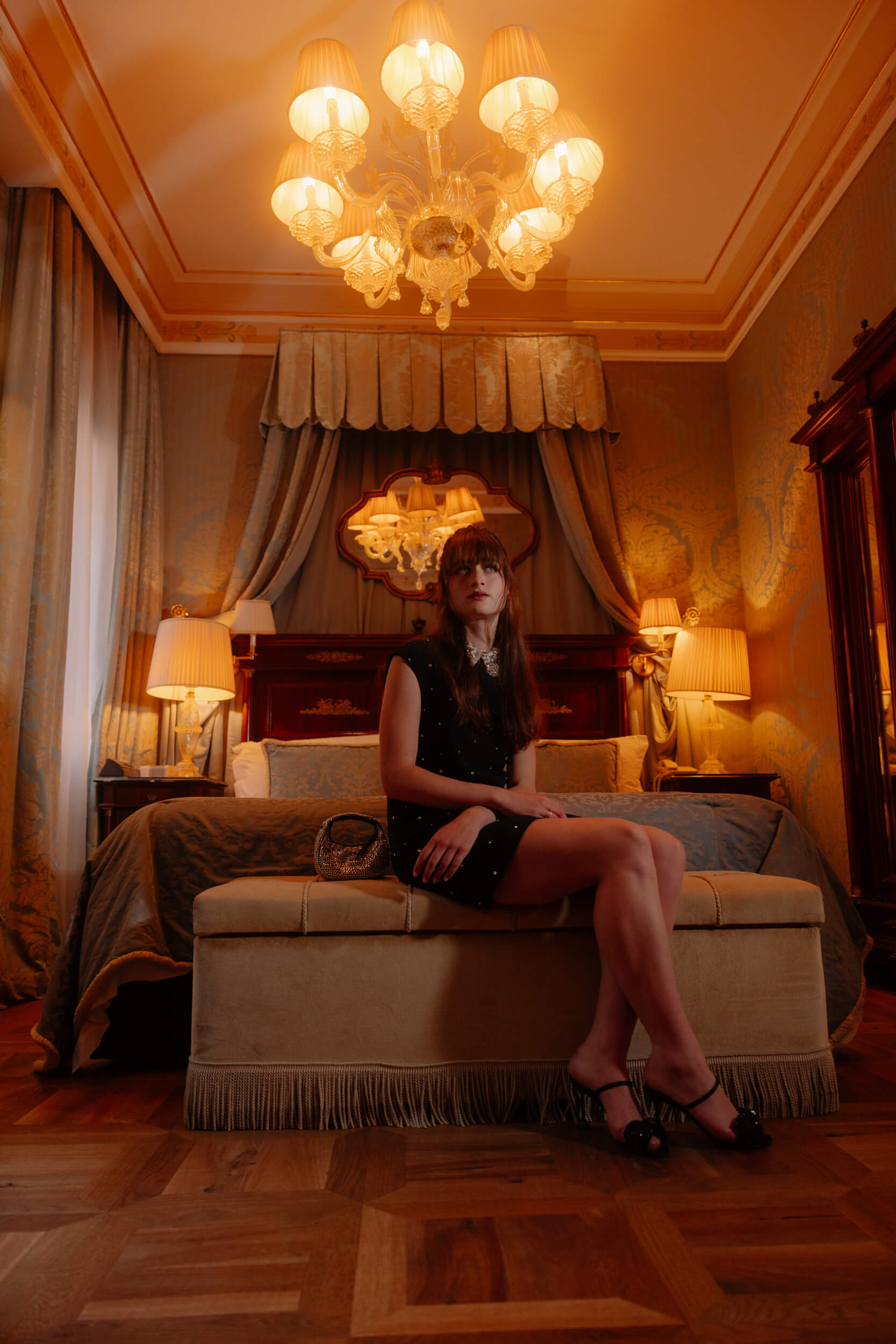
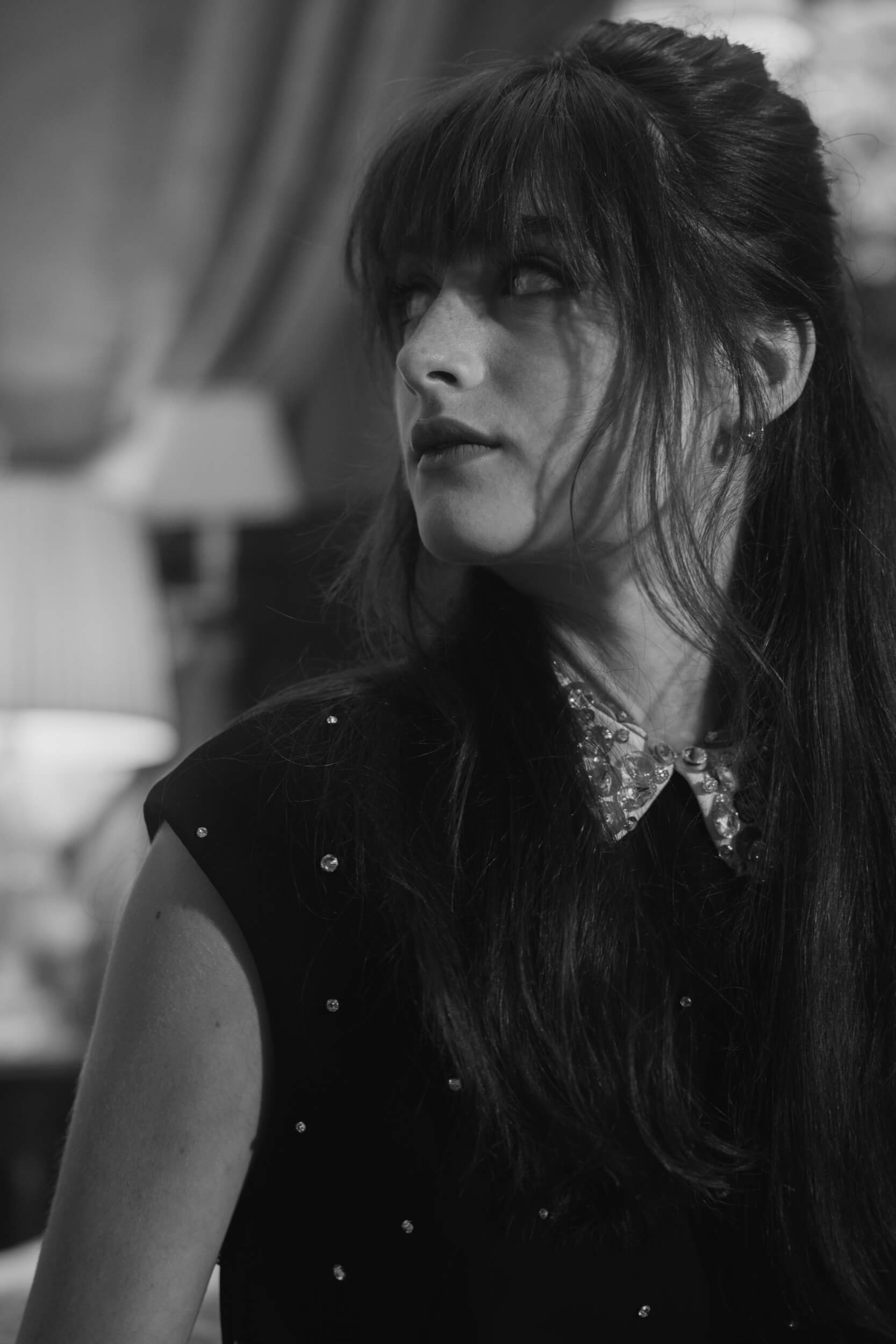
Like you said, it’s beautiful that through Miu Miu you get to meet other female directors and other actresses that maybe you haven’t met before: it’s also a place for connection. So, it’s really beautiful and inspiring.
Yes, it really is inspiring, you make connections and you actually make friends, as well. It’s not like when you meet at a dinner and that’s it, you actually make acquaintances and hope to work with them in the future. I guess that’s the point: that women are finding each other in the business.
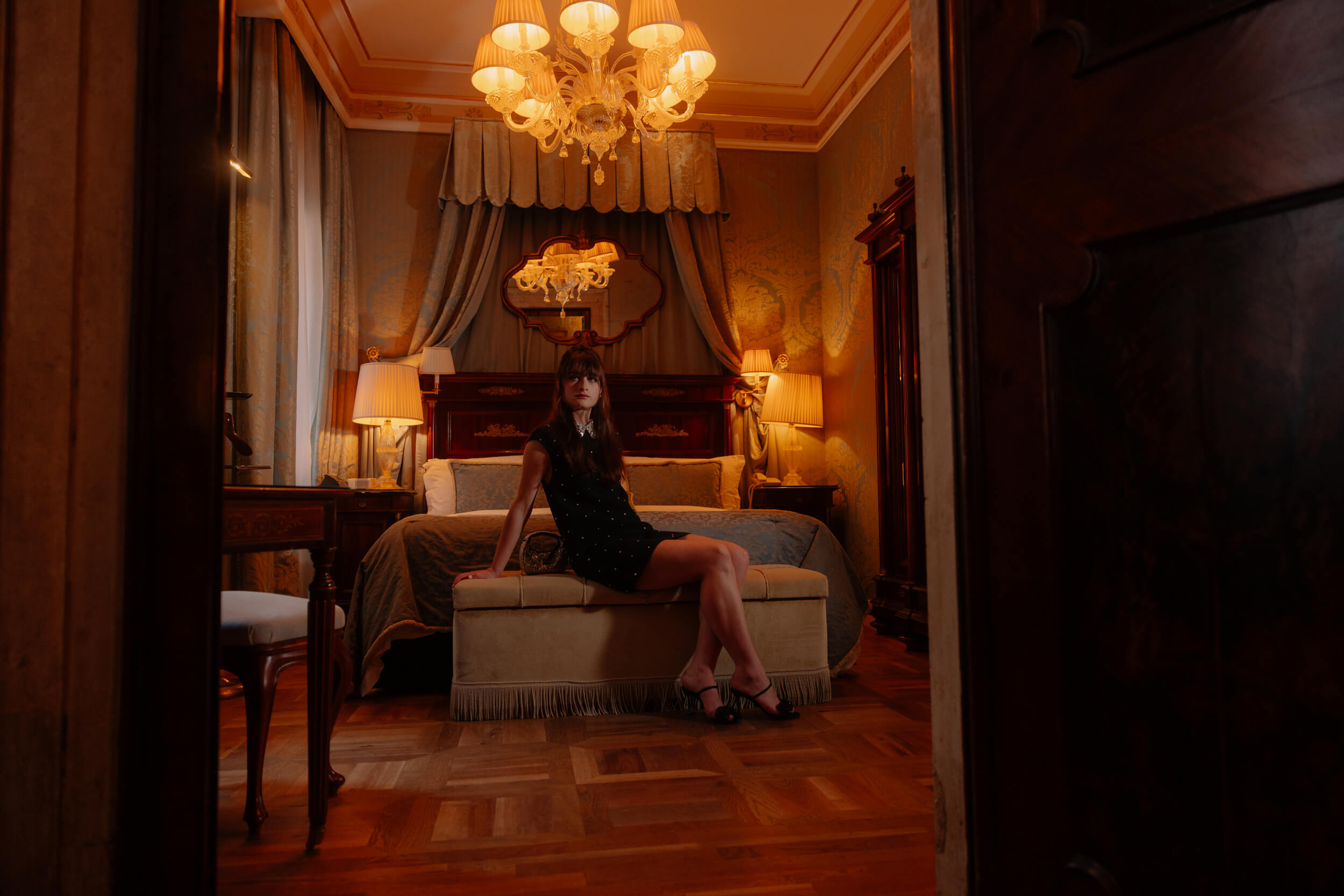
“Women are finding each other in the business”
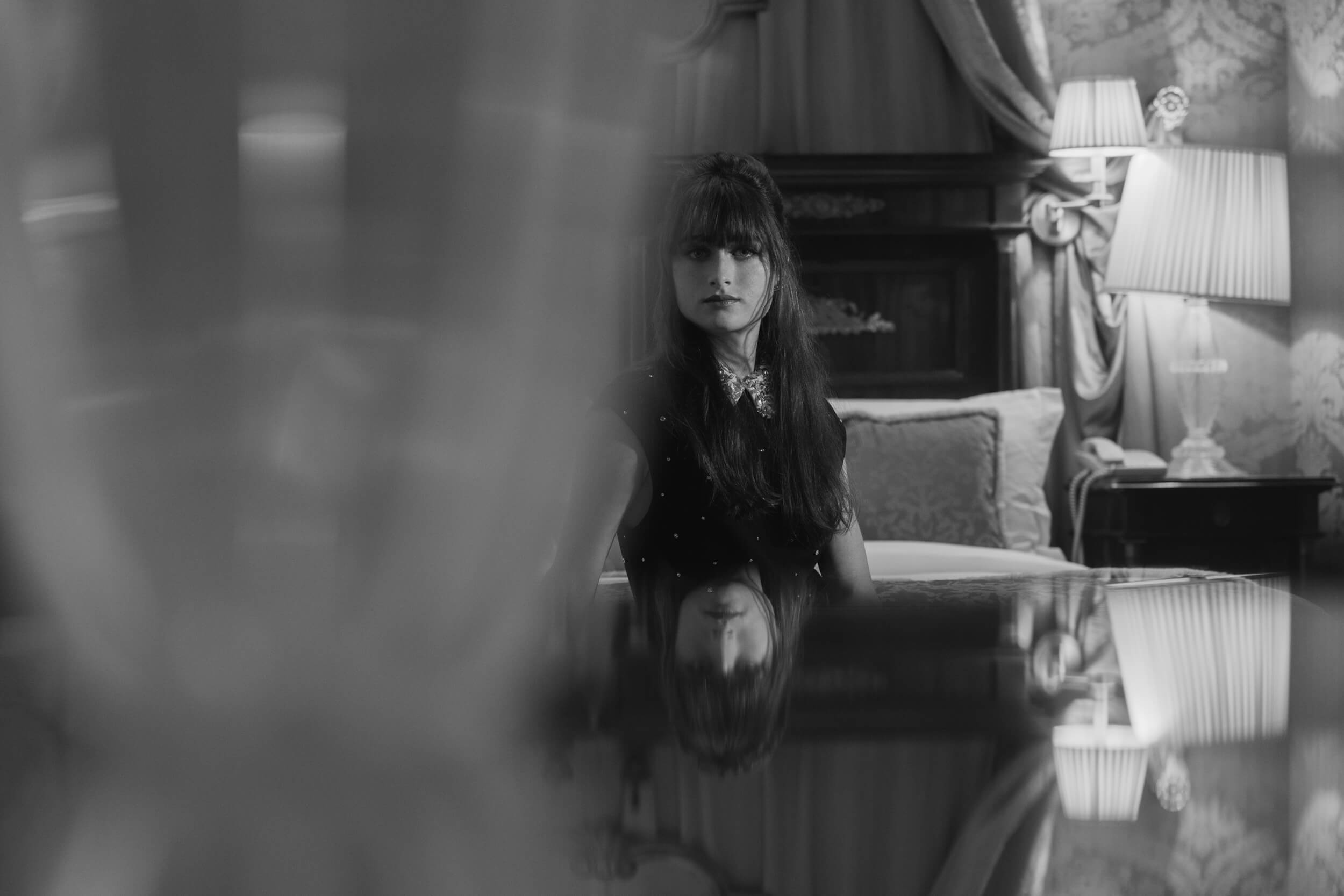
Has your relationship with fashion evolved over this year and how does fashion help you in your everyday life or also when trying to get into character for a movie?
Absolutely, my approach to fashion is ever-evolving, not only in my personal life, but also with work. I think it’s a fun experiment to try and match the theme of your film to your wardrobe selection, like Zendaya did for “Challengers”, for example. Costumes are one of the first priorities you deal with when you arrive on set for rehearsals as the clothes always inform and enhance the inhabitation of the character.
You find your character through your costume.
I think without a costume it would be impossible to surrender yourself to the character.
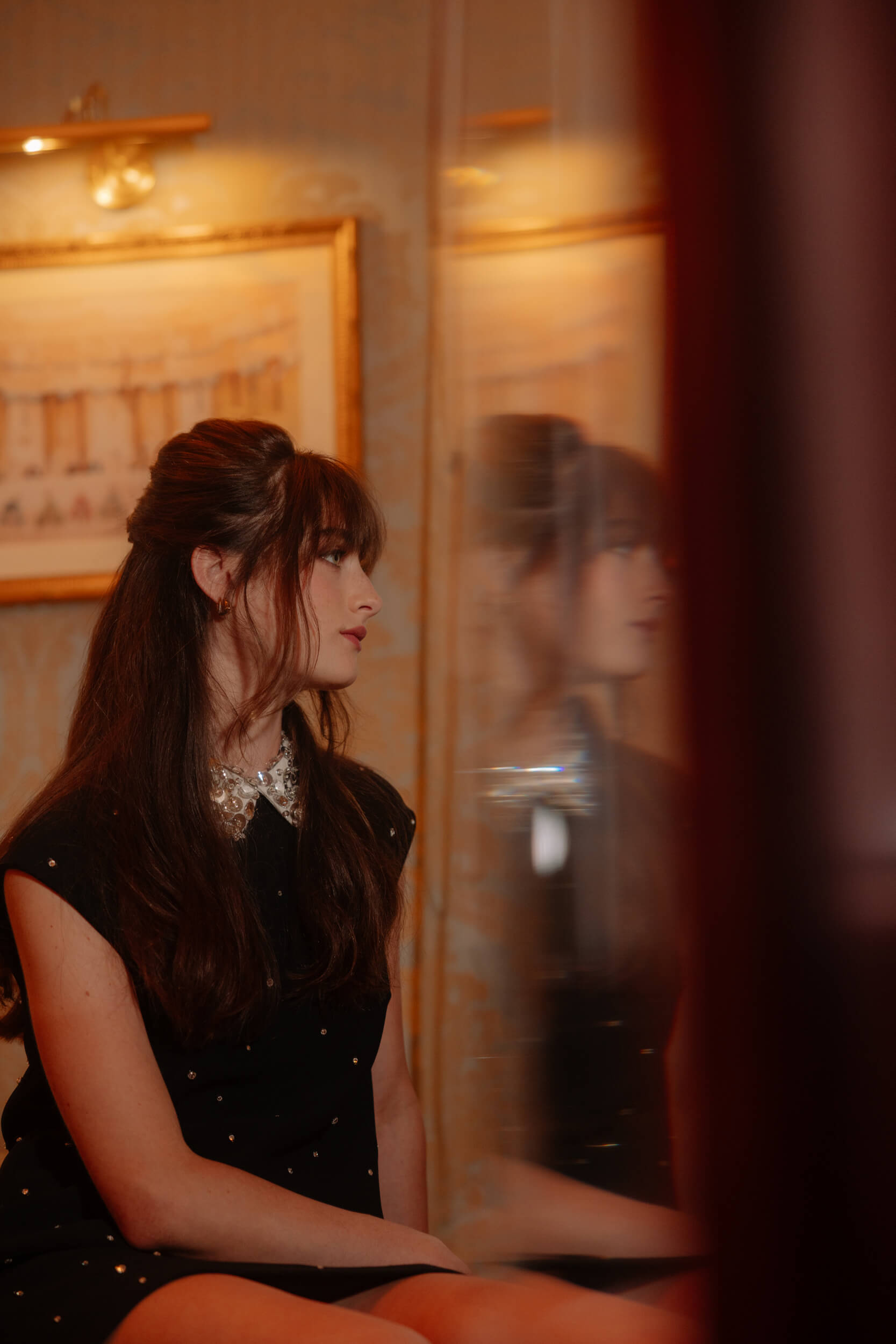
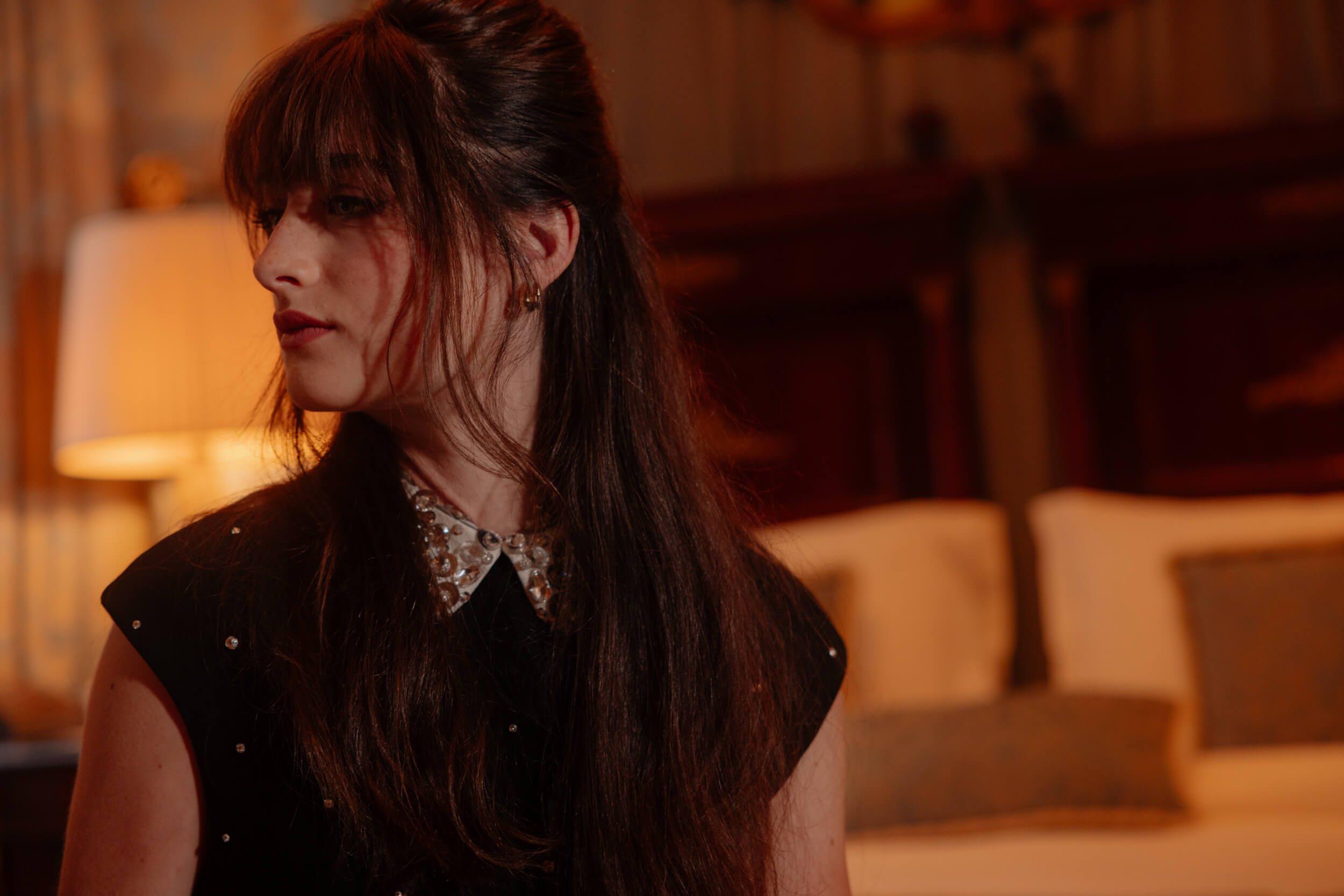
I’ve seen “The Brutalist” and I think it’s amazing. How was it for you to watch it for the first time?
It was amazing. I saw it in the best way: in Venice in 70 mm. I was blown away.
I think Brady [Corbet] is a genius and I think Mona [Fastvold] is amazing. It’s a work of art; a cinematic experience. To be honest, when the first part finished, I wanted to go back and watch it again before moving to the climax. I wasn’t ready yet, but I think it’s one of those films where every time you watch it, you probably interpret a different meaning from it.
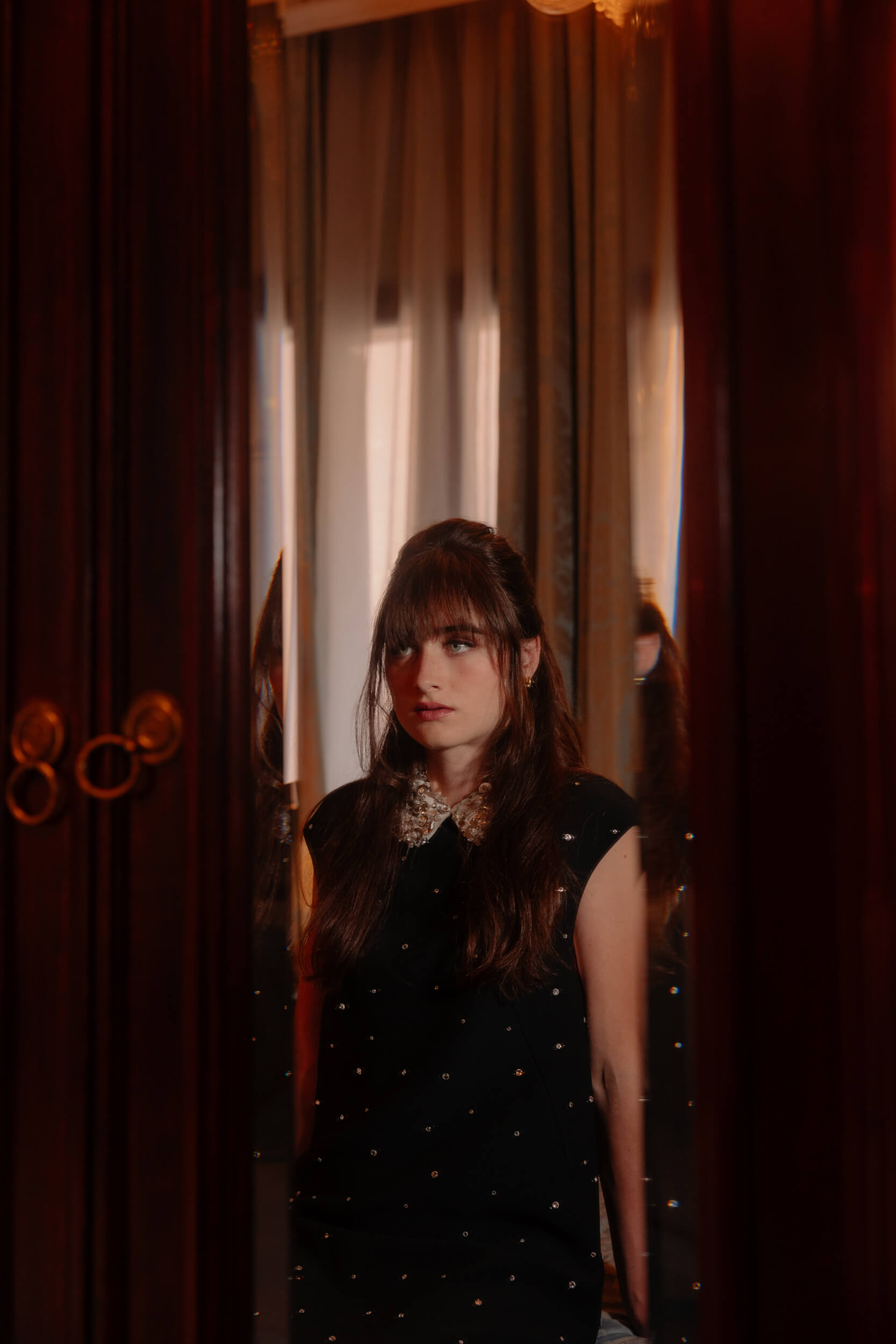
“A cinematic experience”
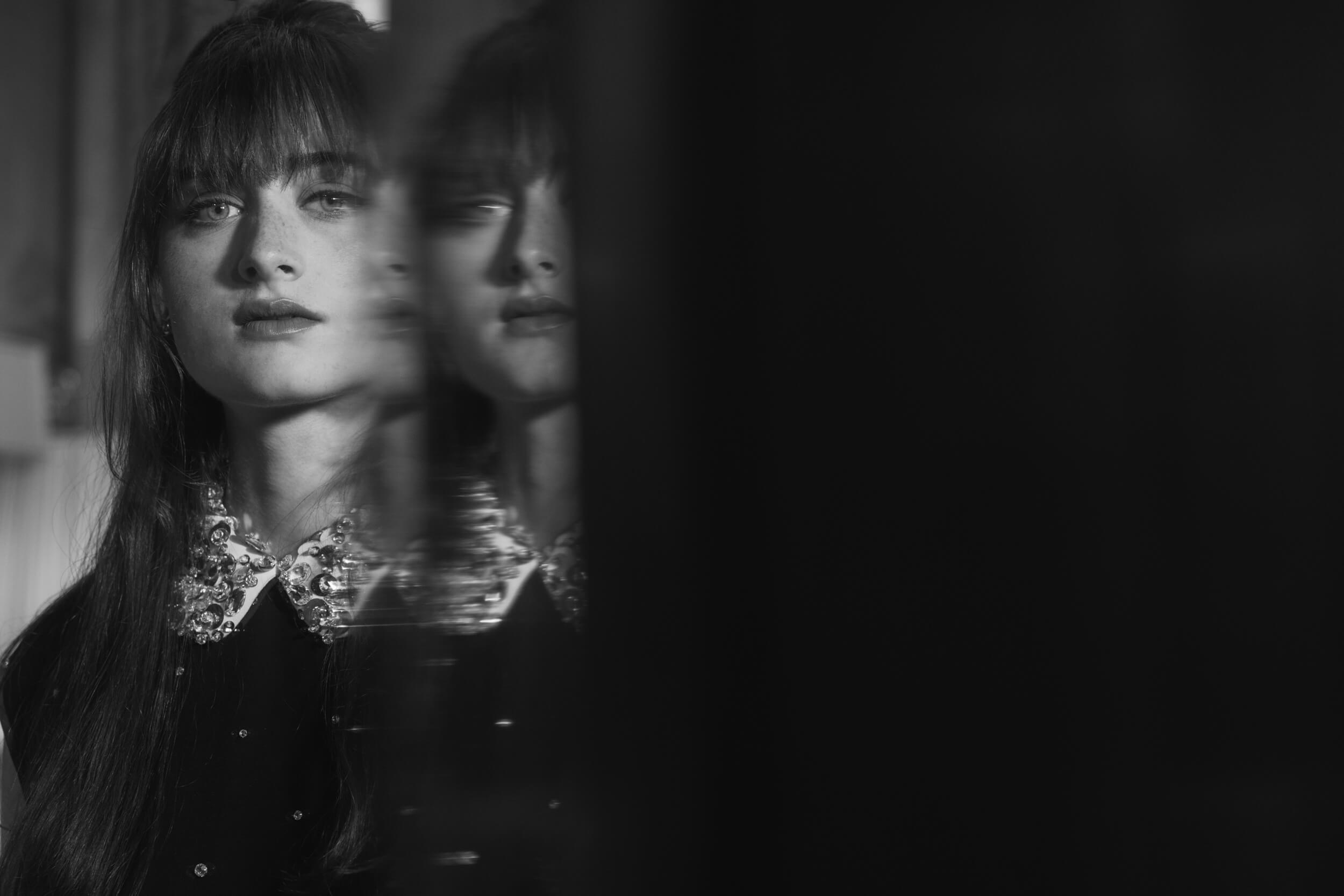
Yes, I want to rewatch it because I’m sure I didn’t catch everything.
Yeah, and Brady really took a risk as well. But I think that that’s what filmmaking is about: it’s not about playing it safe. Some of the best filmmakers have started to play it safe because they know that the audience comes in to watch them do what they’ve become famous for. But it’s really nice to see people take risks, and sometimes it works out and sometimes it doesn’t, but you just want something new in cinema because it’s evolving with technology.
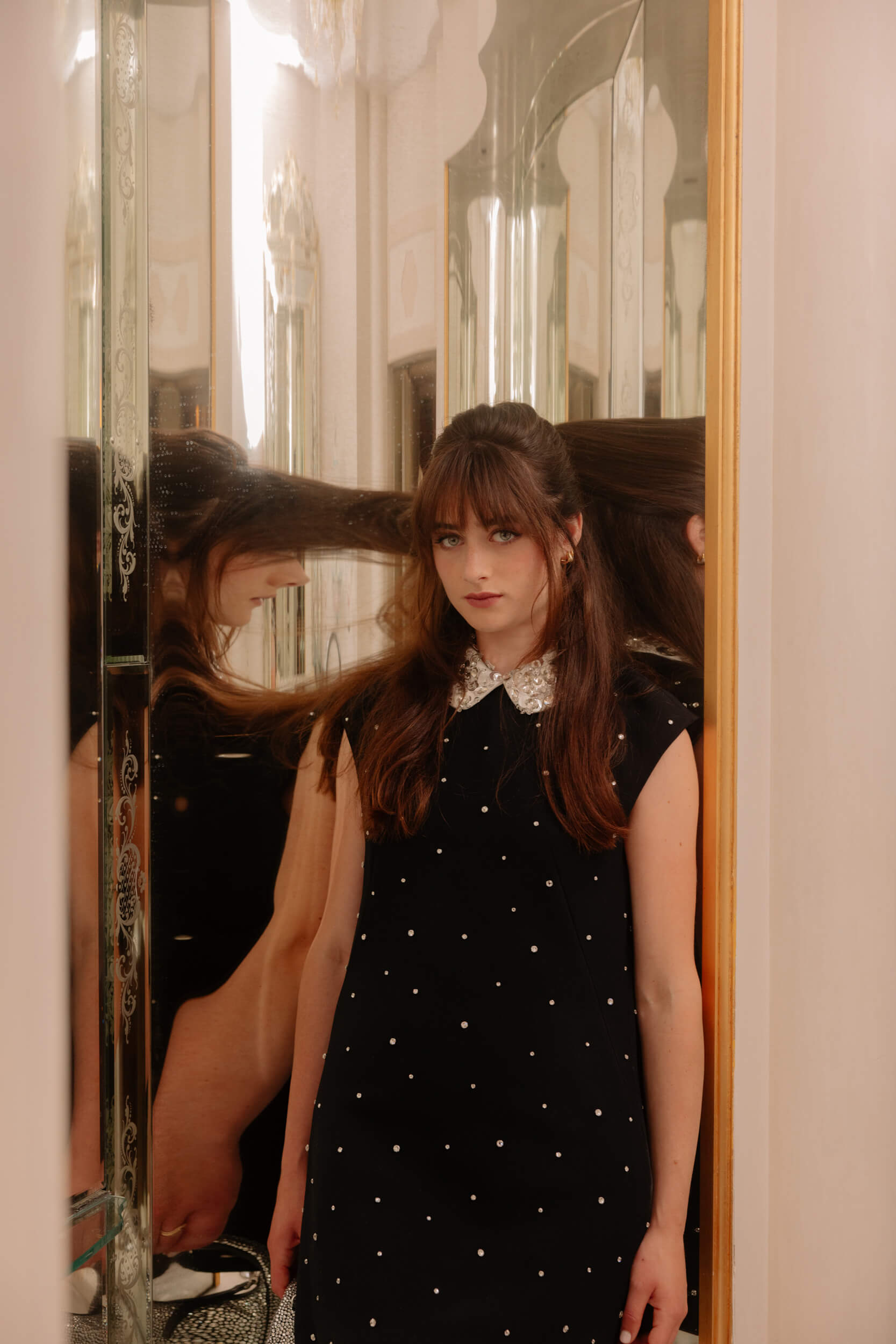
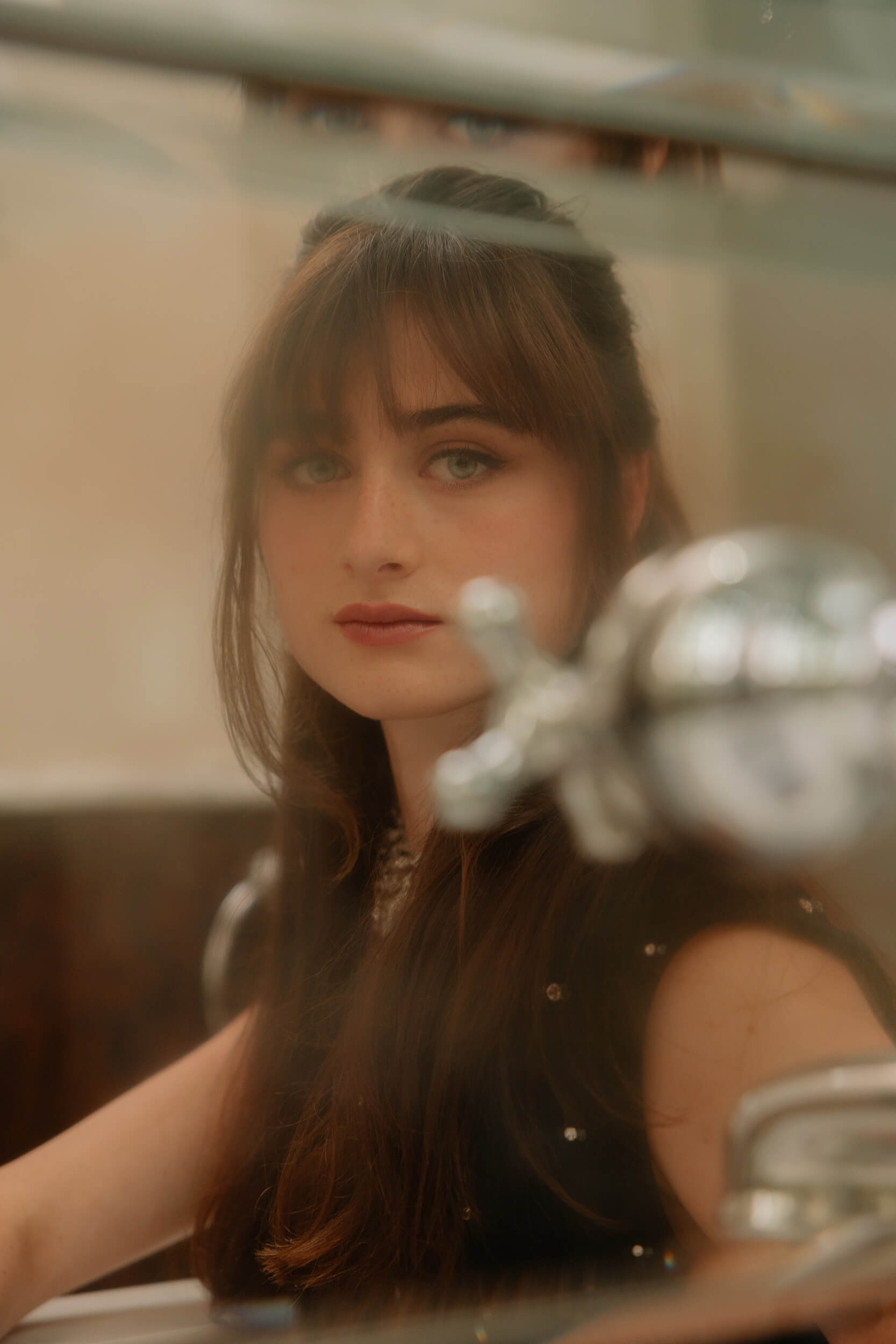
What was your first reaction when you read the script, and when you knew about the project?
I remember I was at a party in London and I was standing with Brady and he turned to Mona and then he was like “Zsófia?”, and I was like, “What do you mean?” [laughs].
He’s the coolest person ever in that he’s not pretentious about the business at all, he’s so inclusive and easygoing and he said, “I’ll send you the script”. I read the script multiple times because I don’t think it’s a script that you can read once and fully gauge the story. I messaged him immediately and said, “Yes, please” [laughs].
It might be six or seven years that I was signed on to it and the cast kept changing and he was trying to schedule this massive project, and then when it all came together, it was a dream come true to walk on set that first day.
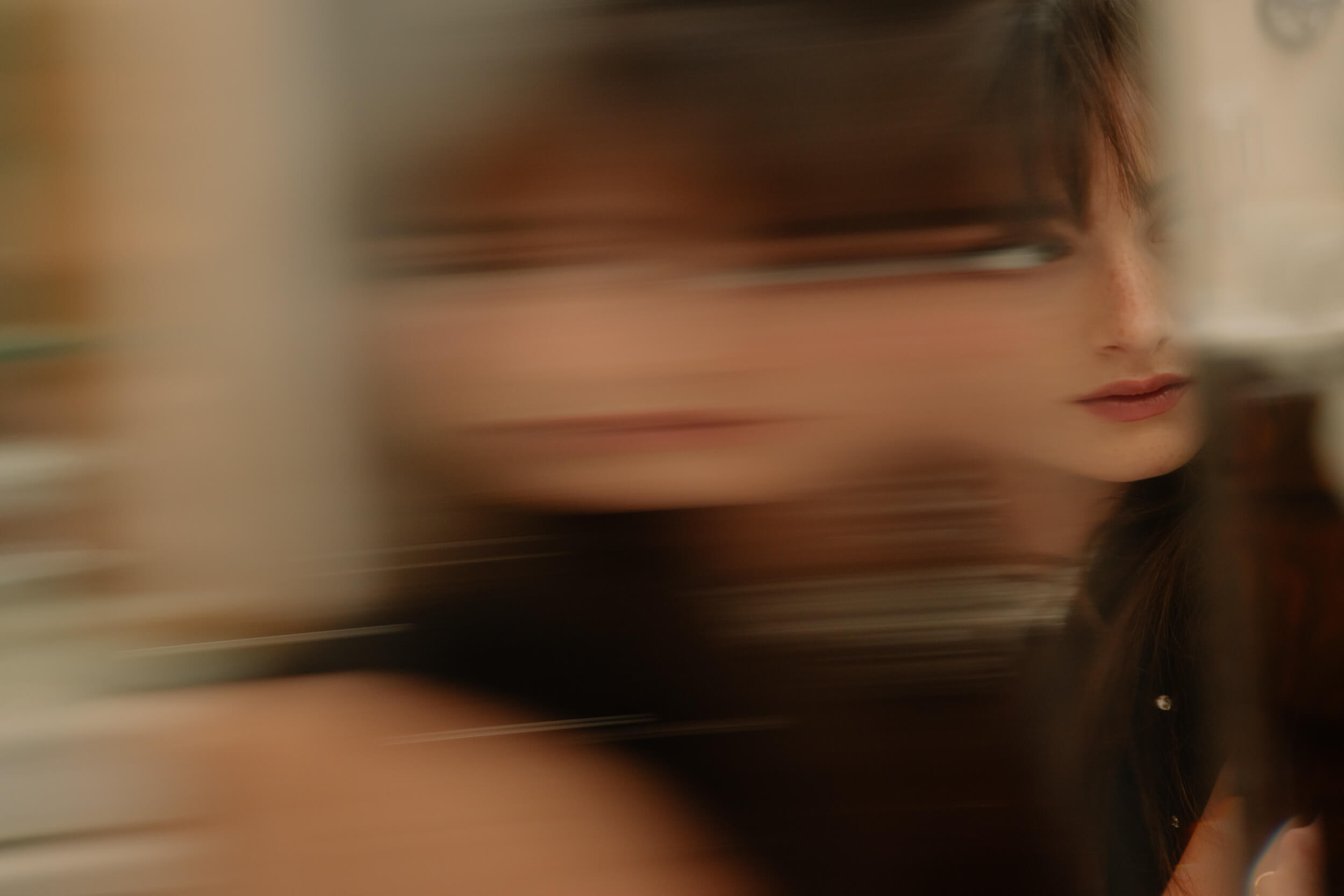
“Yes, please”
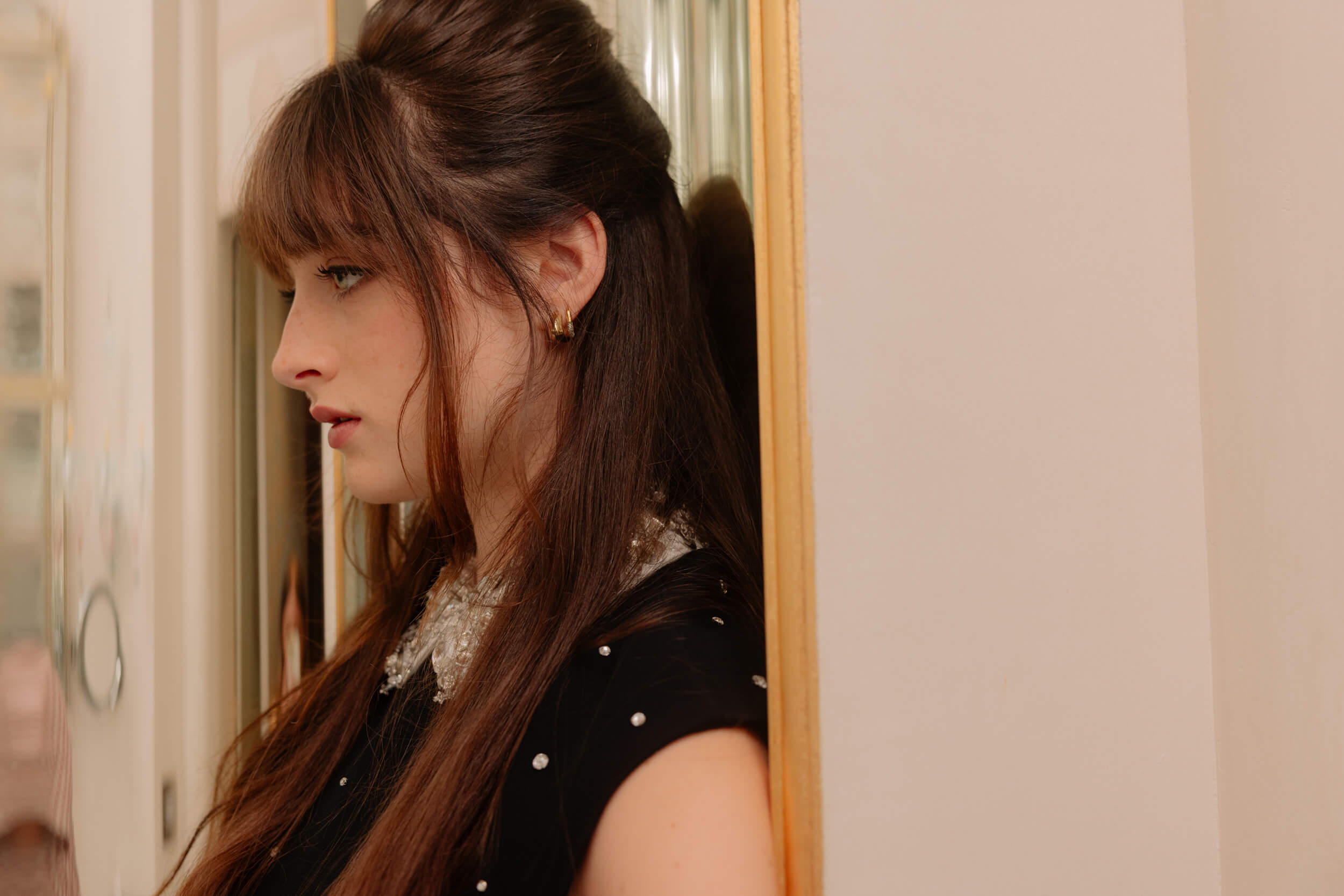
Speaking of your character it really impressed me how she’s basically the only one in the movie that stays a hundred percent faithful and proud of her Jewish heritage, no matter what, and I really admire her integrity. How did you approach this delicate character and how important do you think integrity is in life and the history of society?
I worked so deeply on the character, but I discussed it with no one, actually. I thought it could have been totally wrong, the story that I had developed for her or the reason why she’s mute, so I kept it private because I thought it seemed like such a personal thing to divulge. I don’t think there’s an answer to that place in her life, but I also think that Zsófia was looking for a place to belong and her religion was that.
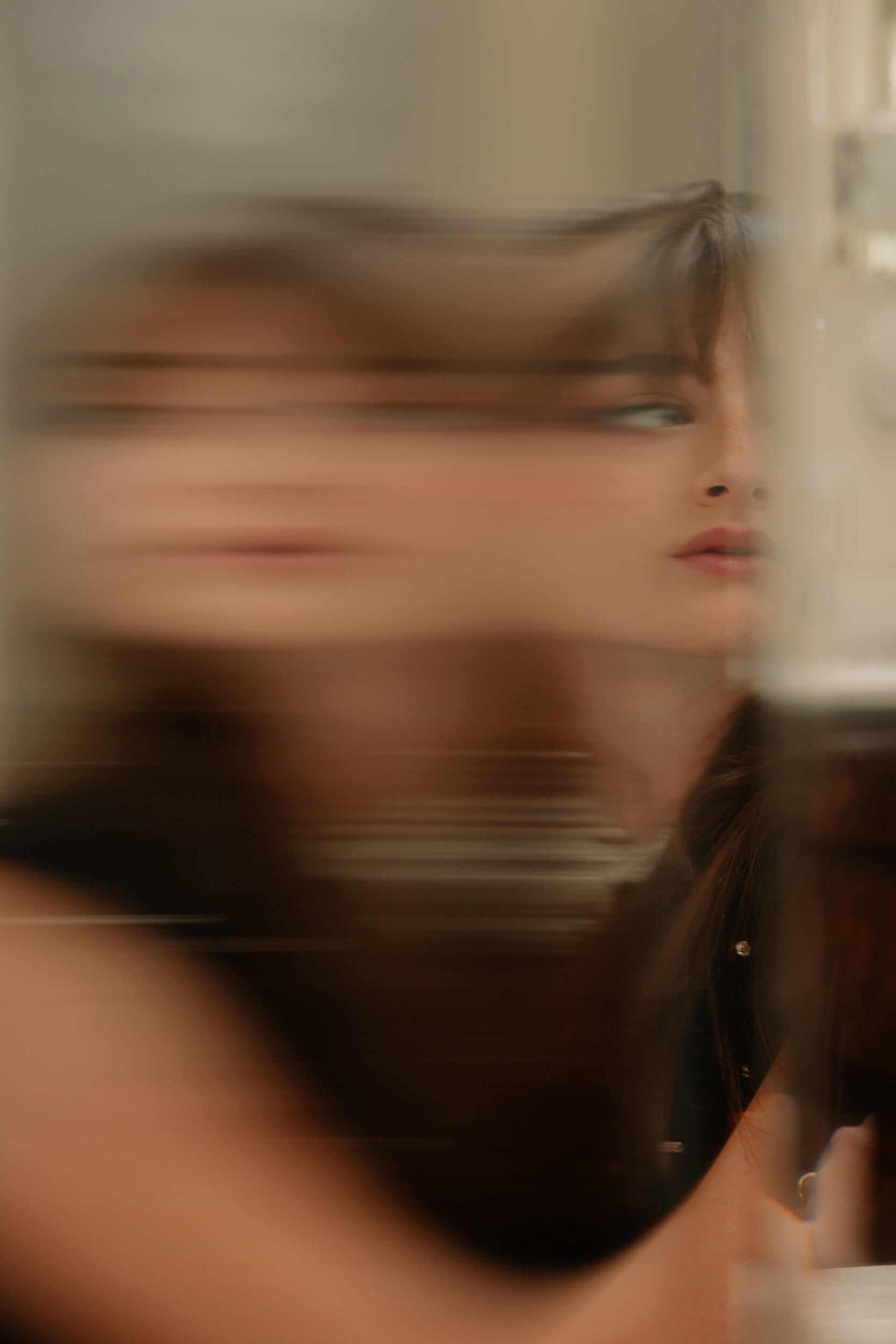
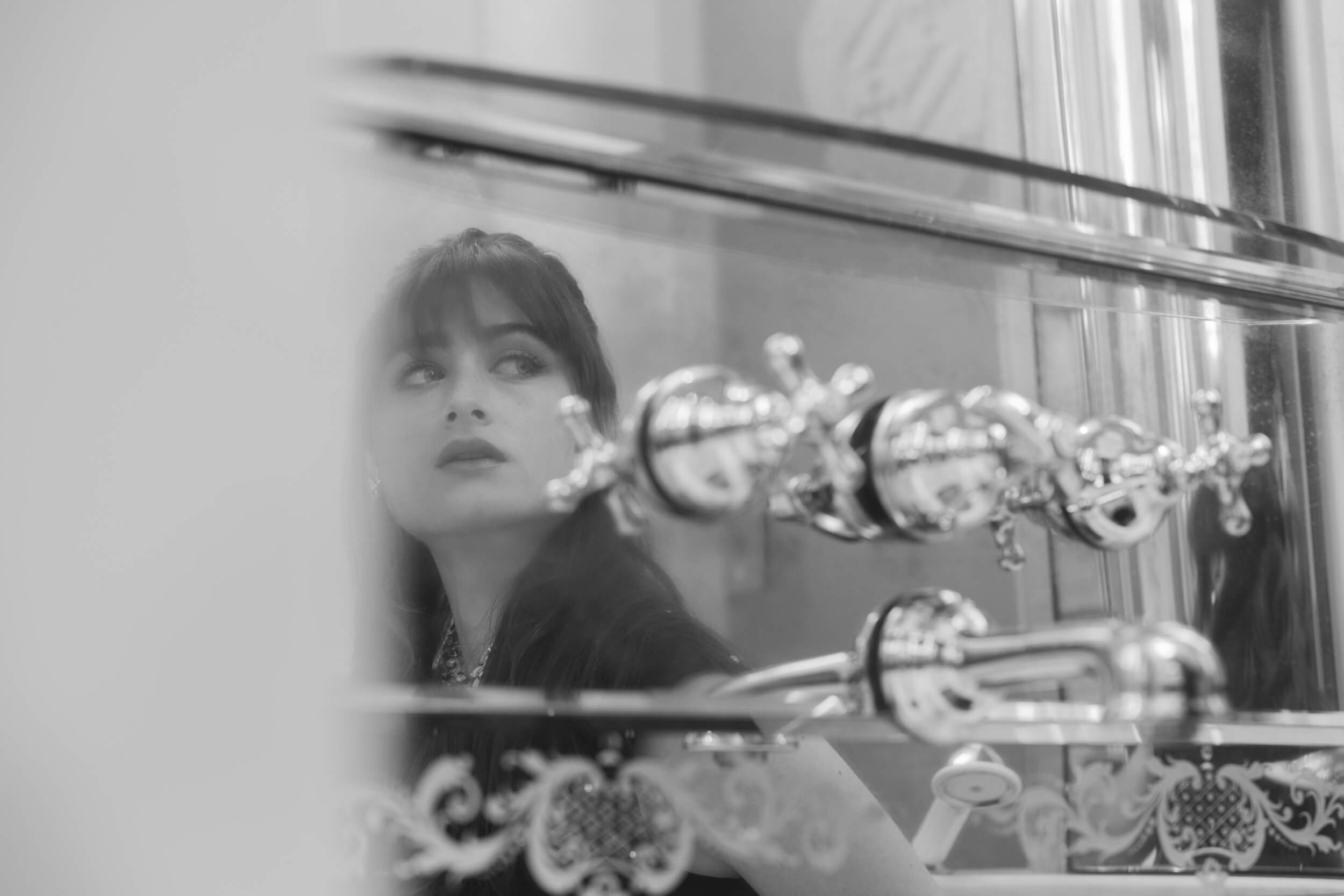
Have you ever reacted with silence to a situation you didn’t accept?
I don’t know, it depends on the situation. Sometimes, yes, it’s easier just to keep your mouth shut, but in the right company I very much like to speak up or have a conversation about it. Zsófia has so much going on in her eyes that I don’t think she ever really needs to say anything, anyway.
Yes, that’s incredible. You were amazing because with your eyes you said everything.
Thank you, I felt so lucky to be able to do that. Brady had written her so well, she just made sense, I understood it, I felt it like it was almost a trauma response, but that’s such a way to diminish what that actually was.
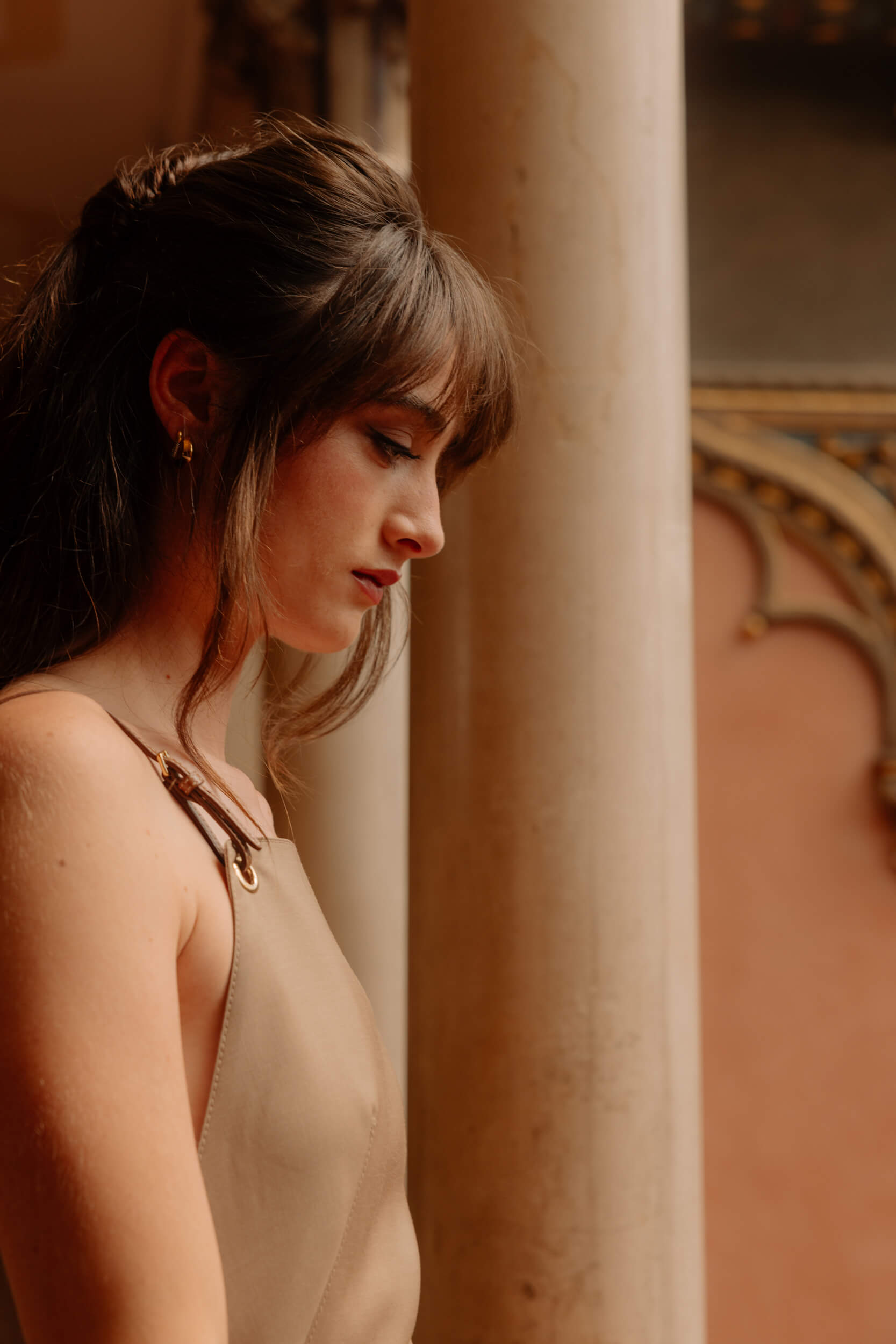
“Zsófia has so much going on in her eyes that I don’t think she ever really needs to say anything, anyway.”
How did you work with Brady to portray this character?
I spoke with Brady a lot about it, although his scripts are so visceral the characters come alive on the page. He also, obviously, likes to let the actors develop the characters on their own.
I remember, for the opening scene, we sat down and, in between the takes, he gave me history lessons, he explained, “This is what she’s gone through, and these are real people”. It felt like a huge responsibility that it’s not just a fictional character or fictional story, it’s history, and a really hurtful piece of it.
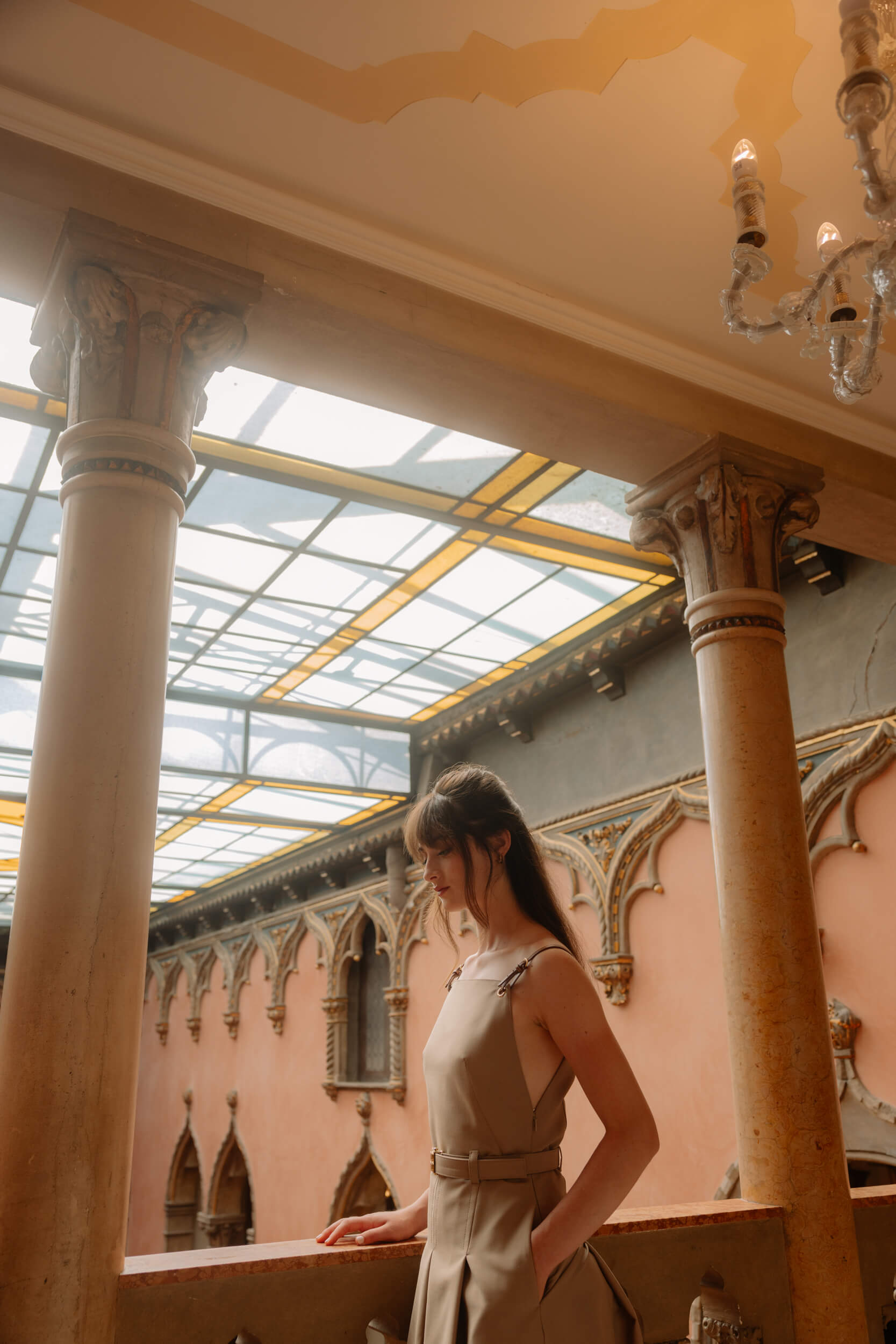
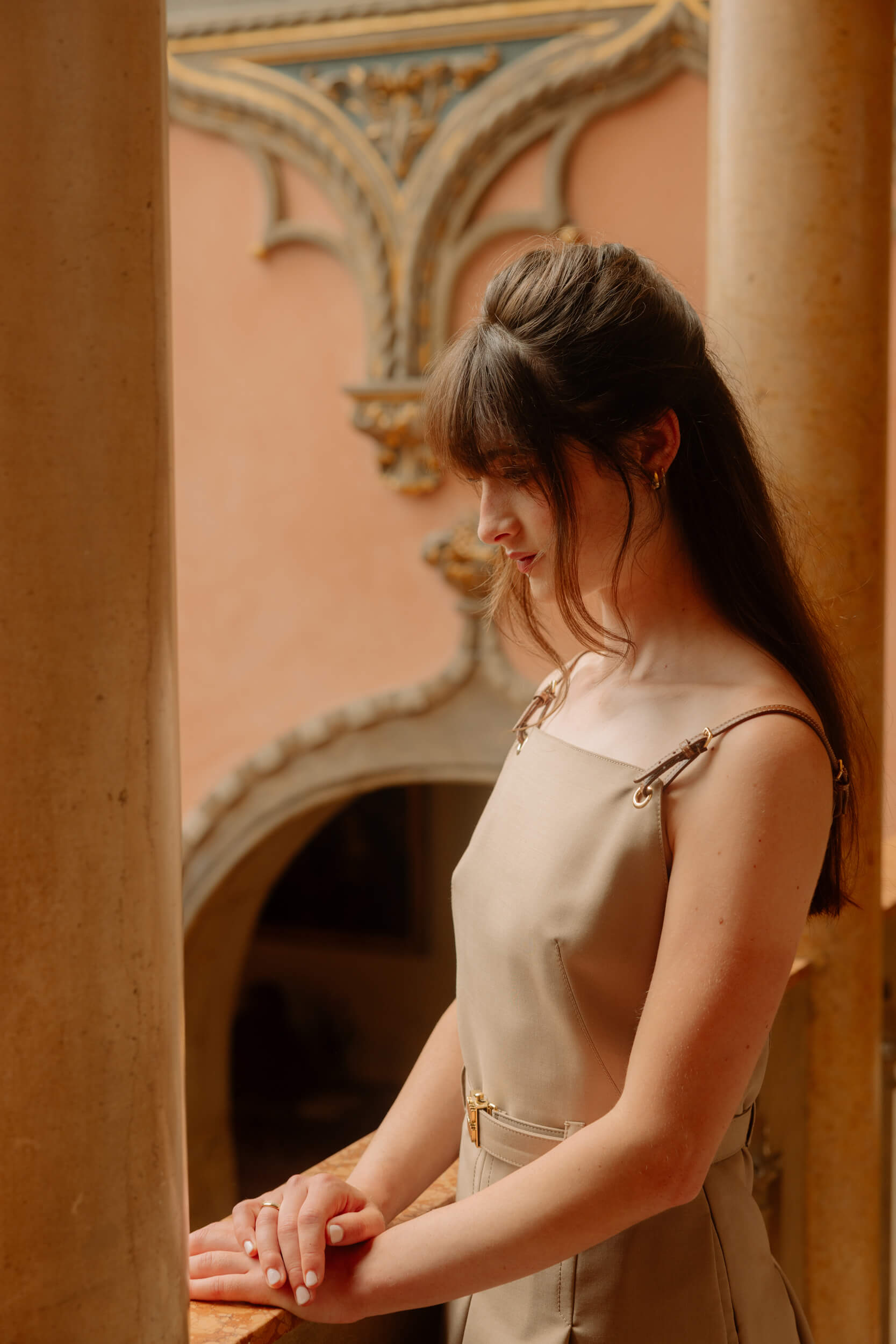
Do you have a special anecdote from set?
My first day was the dinner scene when Érzebet and Zsófia had just arrived. It was so much fun because it was nearly the whole cast and we were all eating this really dry cake, which was terrible [laughs].
You know, a first day anywhere is like a first day at school: it’s horrible; Felicity [Jones] and I entered two weeks into shooting when everyone already knew each other, so we were a bit worried, but actually it was a good place to begin. And that’s probably my favorite scene.
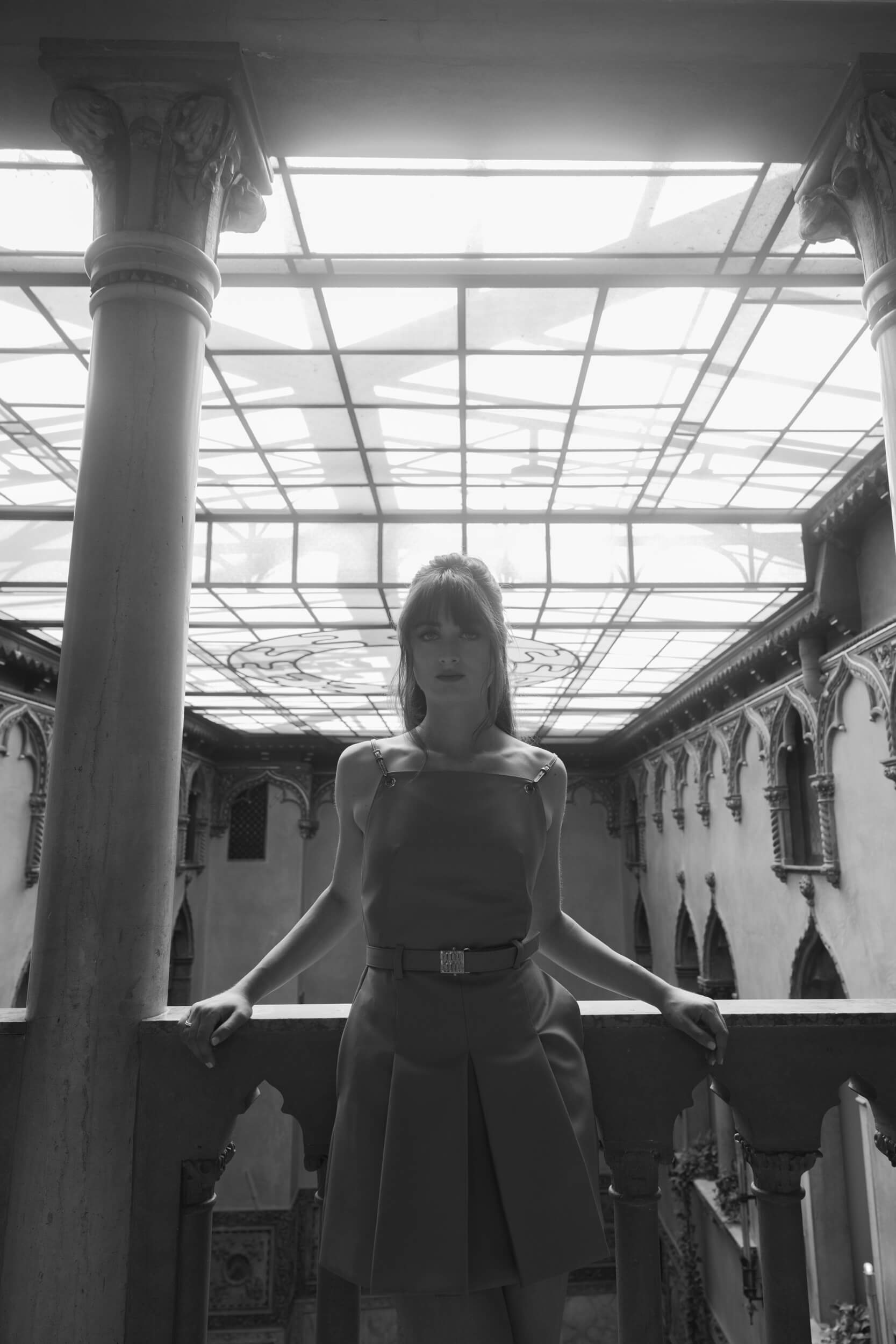
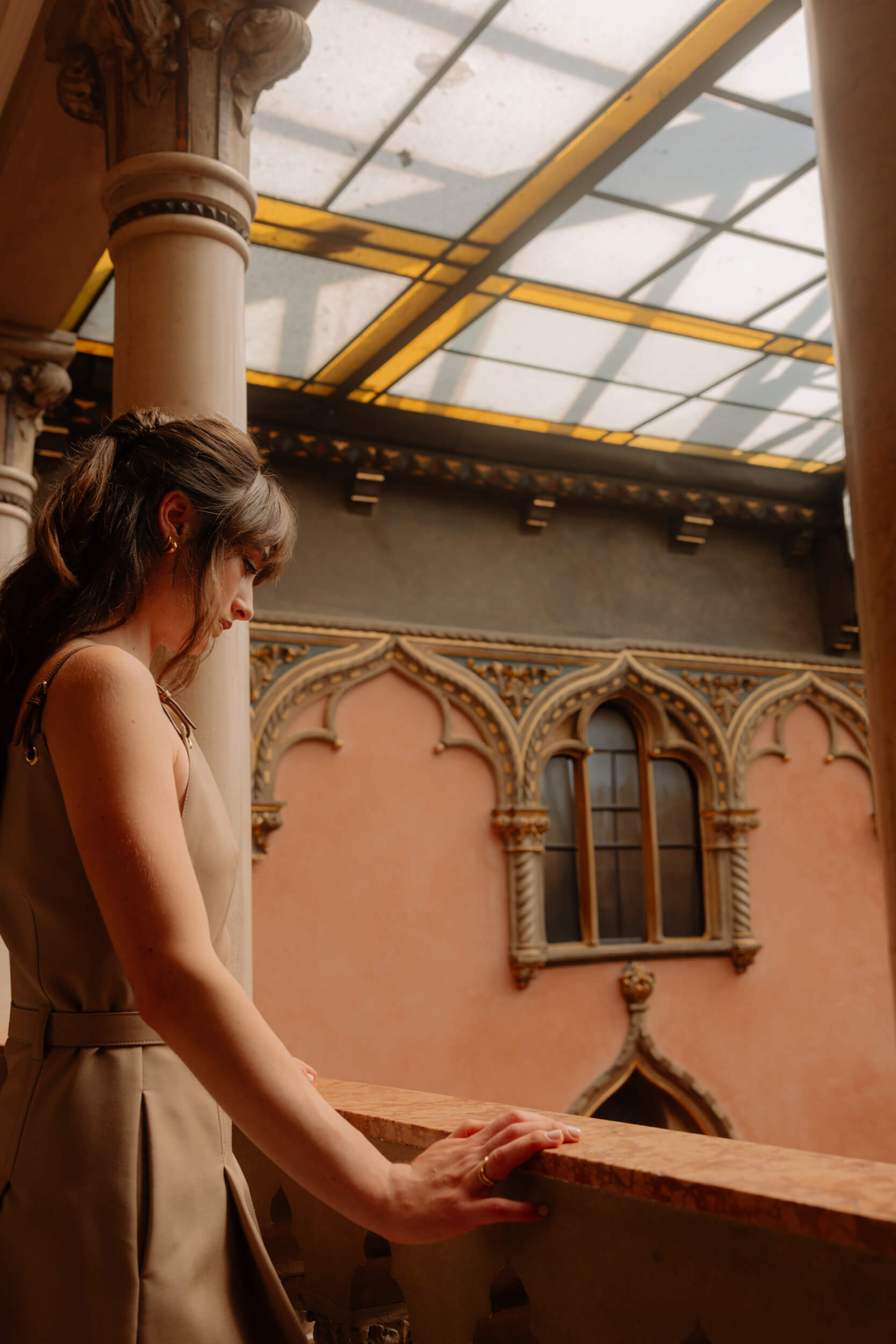
Going back to Miu Miu Women’s Tales, like we said, it is an amazing platform for conversation. What would you like to start a conversation on?
I was thinking the other day, how amazing would it have been if people like Marilyn Monroe were given the chance to make a film? From their viewpoint, what that would have been like in old Hollywood classical cinema? That’s a point I would like to open a discussion about.
Other than that, you know, I wrote my dissertation on the responsibility of biopics because you are telling someone’s life story, and it’s a huge responsibility, also because of creative license. You have to consider how much leeway you have, and I found that really fascinating and everyone I speak to always has an opinion on it.
Yes, I always ask myself, “Maybe they’re going to be mad?” or “Is it what’s really happened?”.
Yes, and when you put that out in the media, as well, it’s so effective that we will pretty much believe anything that was shown if we’re told it’s true. I think that would be a really interesting topic.
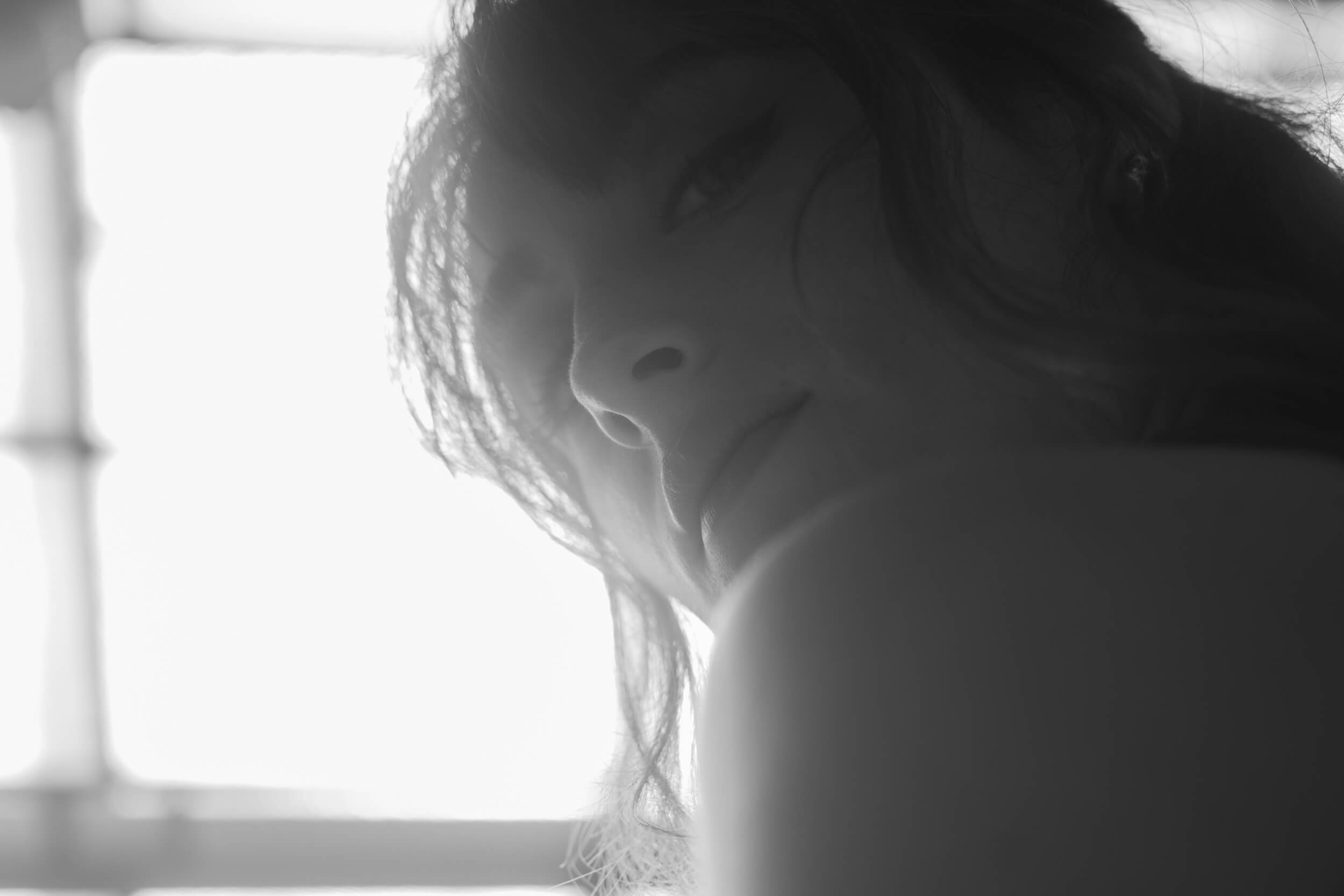
In general, what makes you say yes to a project?
Firstly, the director and then the script. Those two things go together anyway: you’ve got to have a good base to start from, but it’s a feeling, as well, you just know when you’ve read a good script. When it’s taking me more than a day to finish it, I’m not hyped.
I remember when I read the script of “Jojo Rabbit”, the feeling I got was like, “This will be amazing” and it was, and “The Killing of a Sacred Deer”, I sat down and I probably read it within an hour, and said to my family, “I have to do this!”. You know, Yorgos Lanthimos is an absolute genius, for example, he’s a risk-taker, and I like it when people take risks. Sometimes it doesn’t work out, and sometimes it does, but if they want to take the risk, I’m more than happy to go on that journey with them.
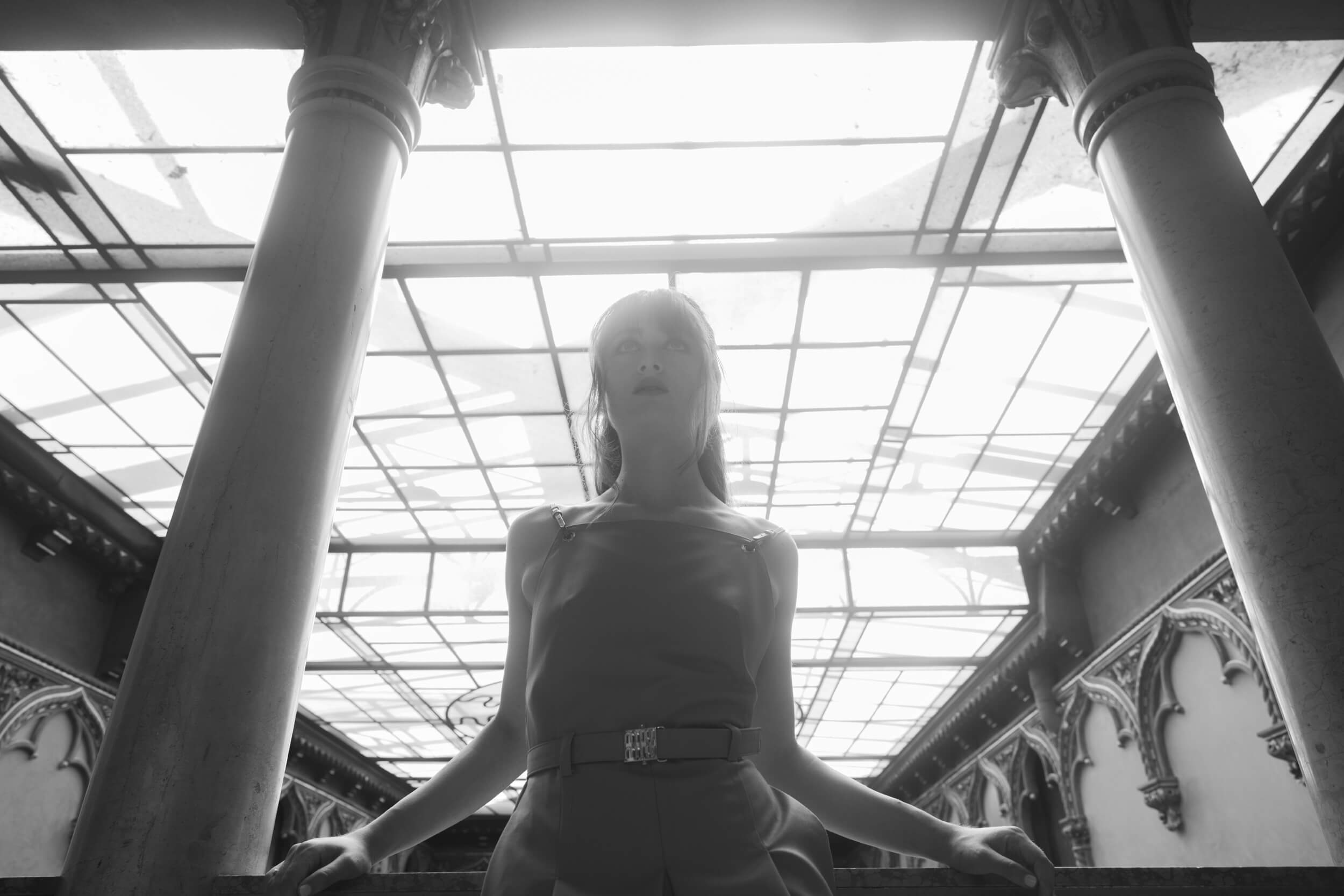
“I like it when people take risks”
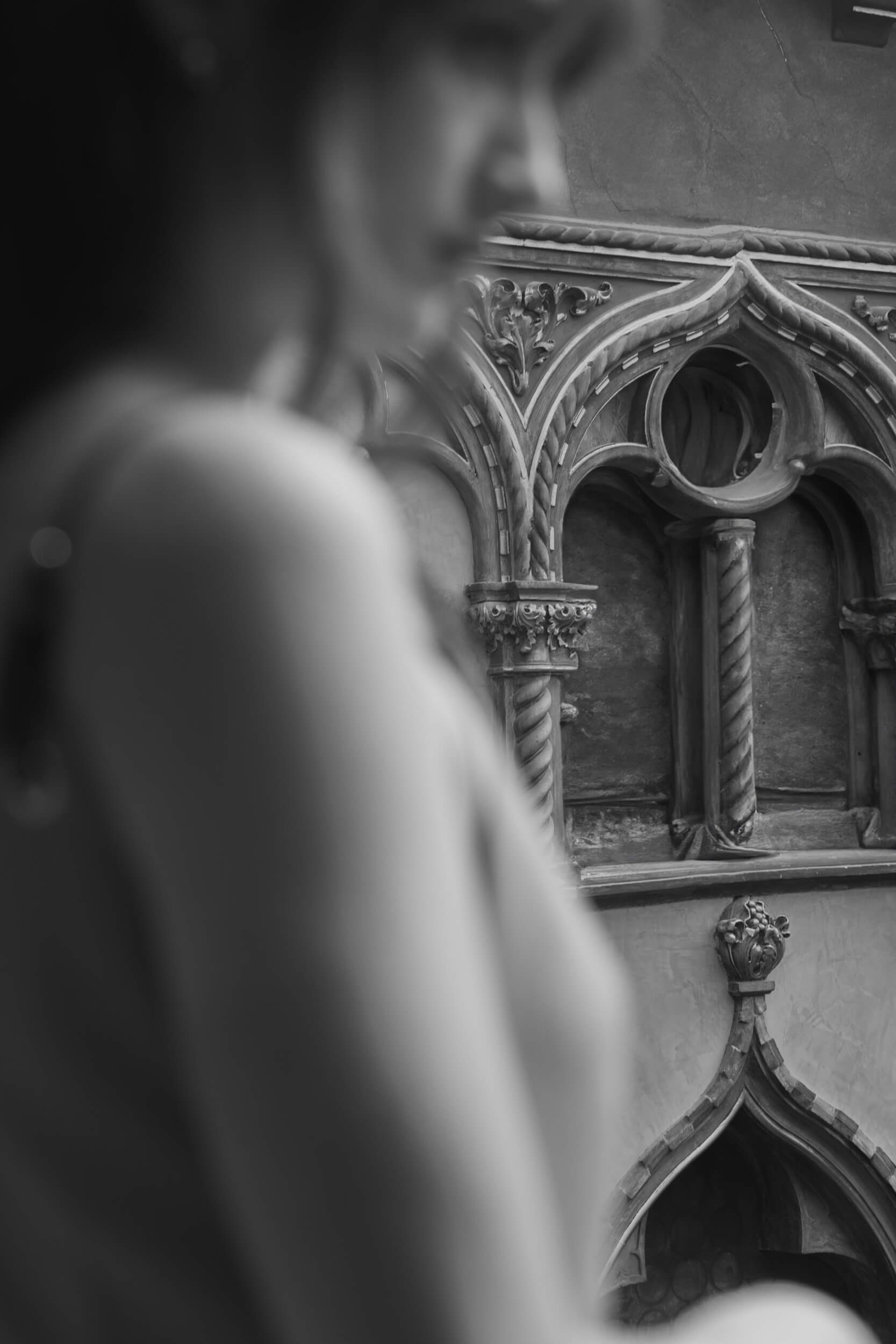
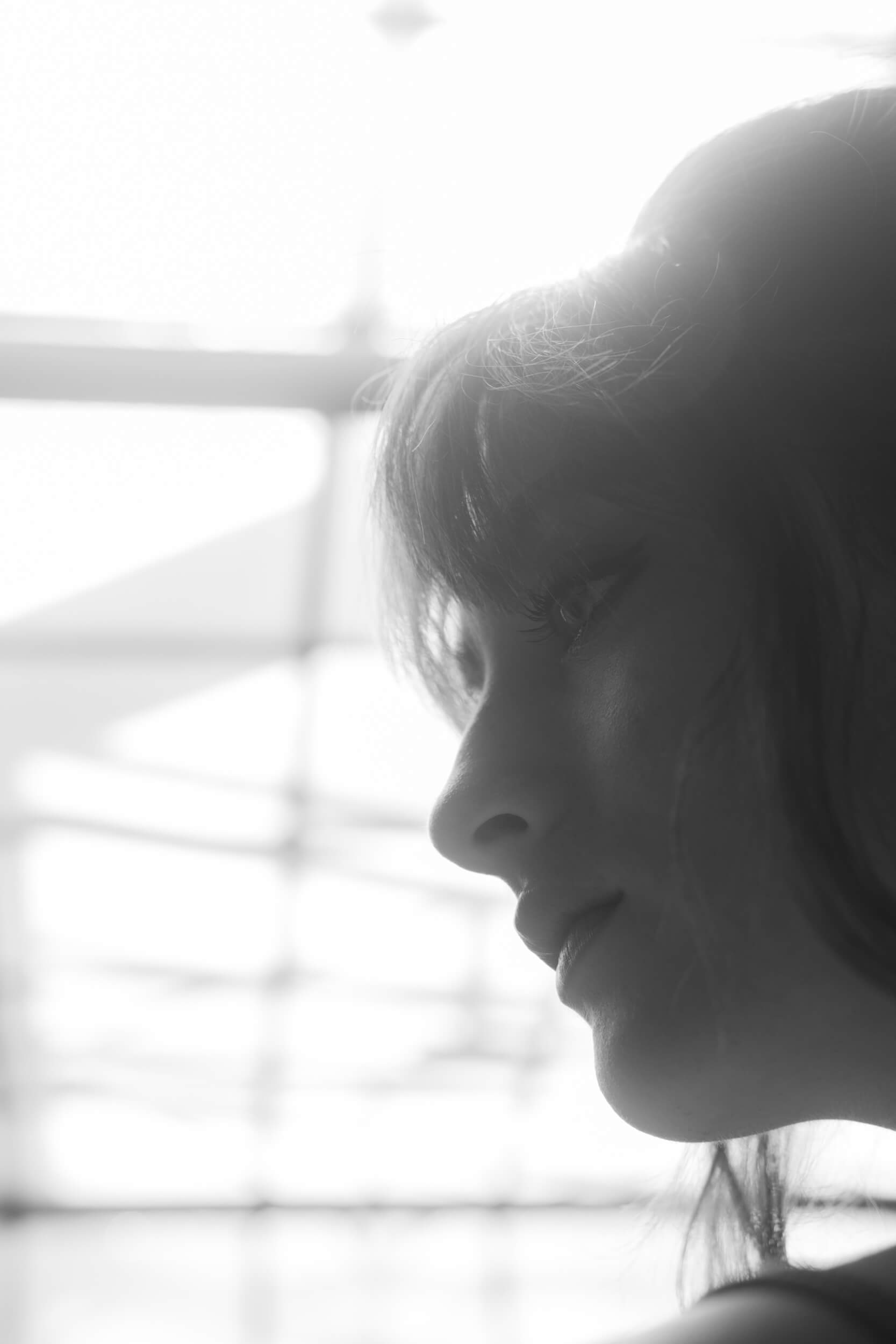
Playing different characters every time, studying the character you learn something about yourself, something new every time. What was the last thing you learned about yourself through your work?
I think my way of preparing for characters has adapted over the years. When I was younger, I would do character work, but I would learn my lines the night before and that always worked best for me. I think now that I’ve grown up, I like to read so much about the history of the topic or I like to find music for the character, I like to find my own mood boards for the appearance. I’ve learned that now I am much more of a preparer.
What’s the saying? Prepare to fail or fail to prepare.
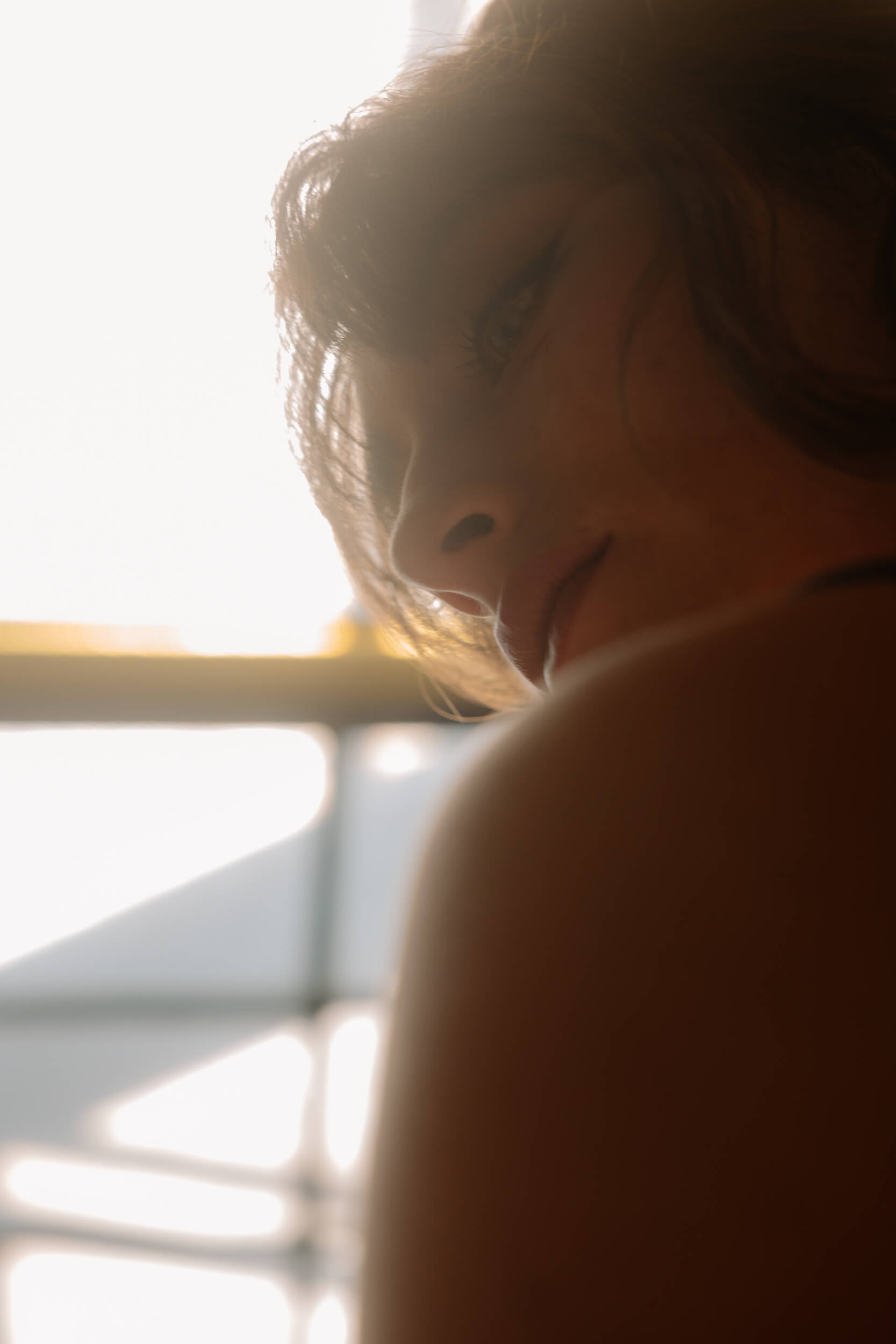
When do you feel the safest and when do you feel the most self-confident?
On a Brady Corbet set.
When I step foot on his sets, he really makes me fall in love with cinema all over again. I love cinema deeply and he is a director that is one in a million. I feel safest when I trust the person who is running the show, which is the director and the people I’m surrounded with, and that’s when I feel most confident. I’m playing different characters, and I always feel more confident in the character than in myself.
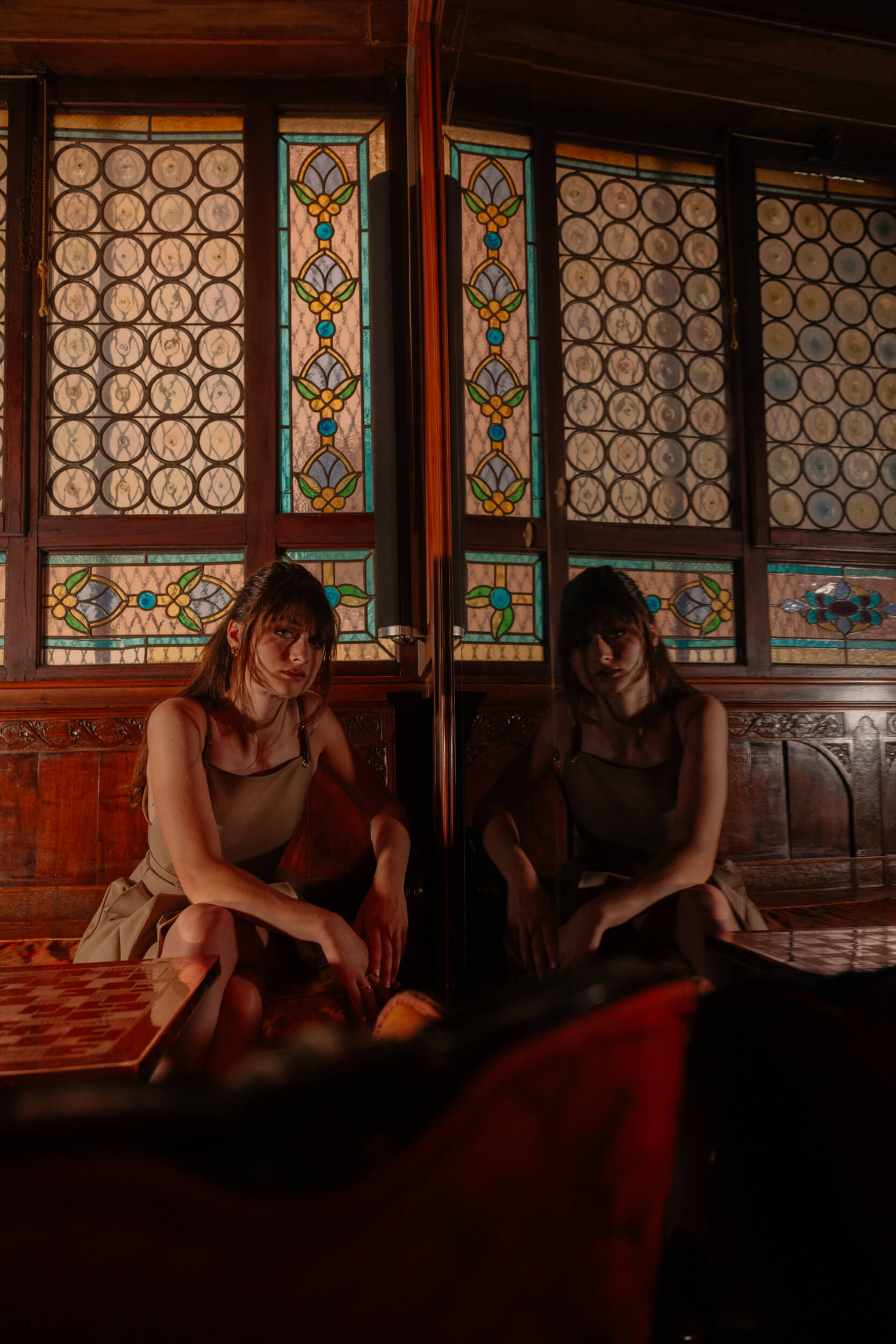
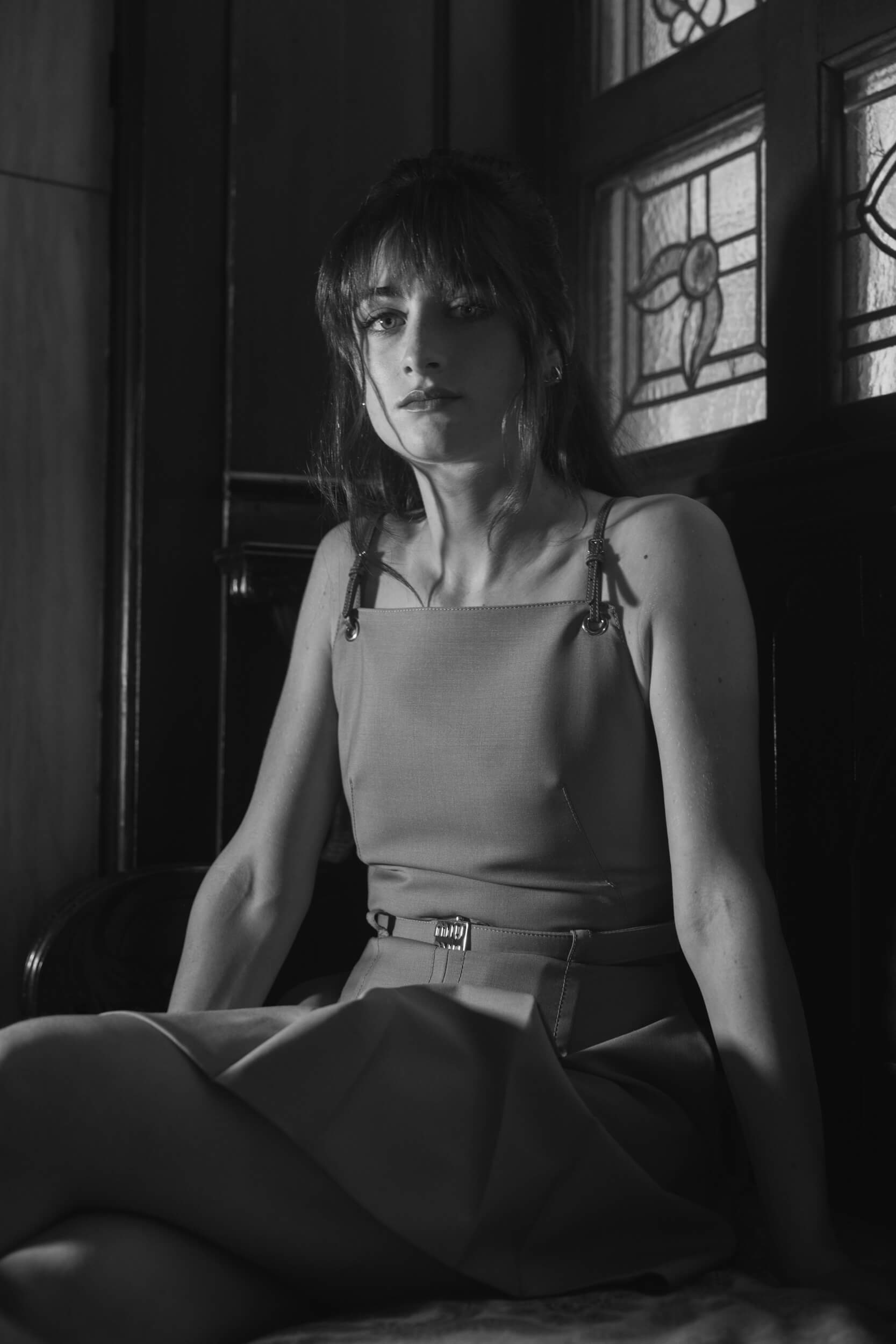
I’m curious: what’s the latest TV series or movie you have seen that stuck with you, that after you watched it, you thought about it for days?
“Close” by Lukas Dhont. It’s a wonderful movie about two young boys and nothing really happens, but everything happens, and it’s so sad because it’s about their friendship and how cruel children can be. And their friendship maybe is more, maybe it’s not, but that’s not the point, they’re not thinking about that because the other children pick on them… I won’t tell you anymore, but it stuck with me for so long.
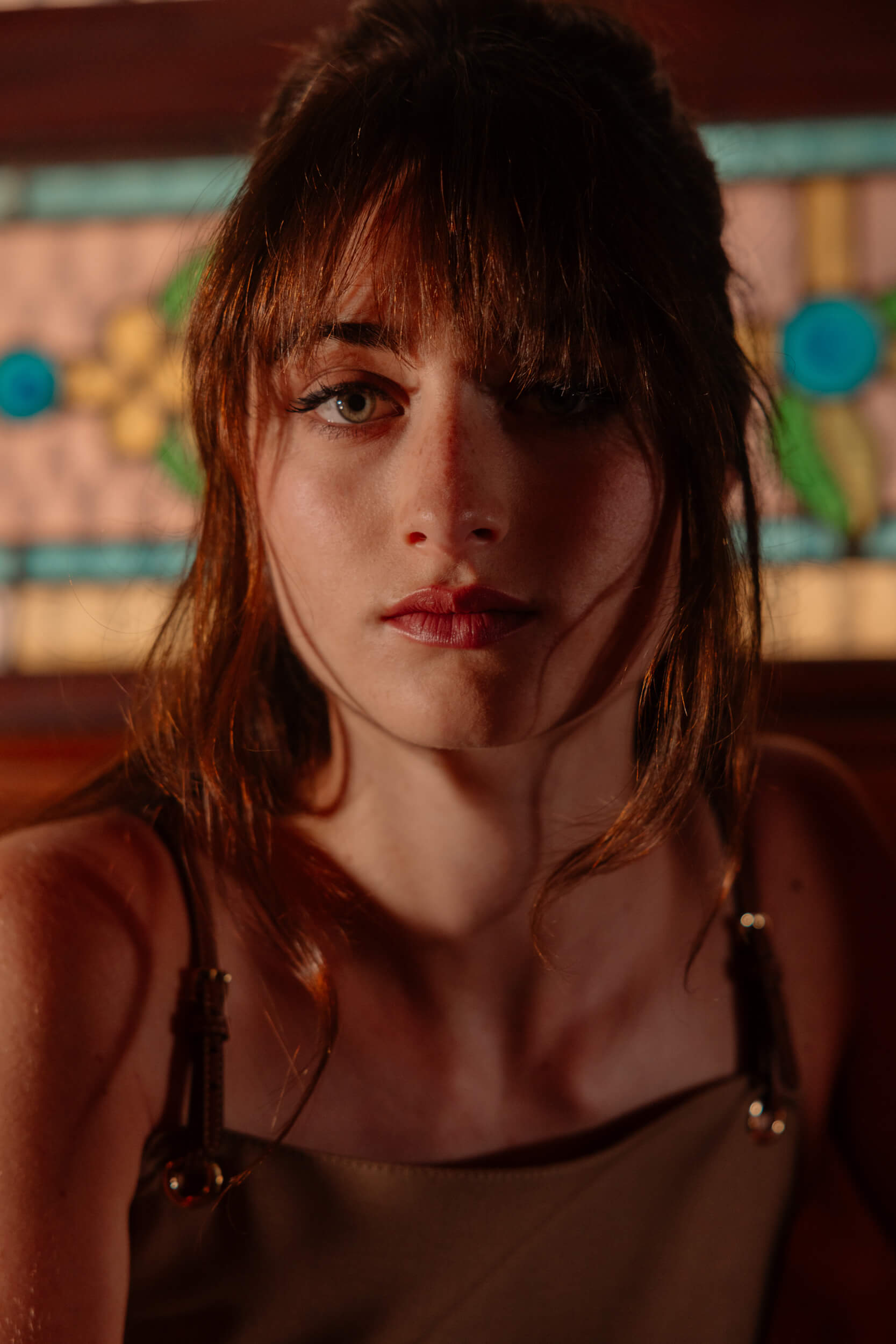
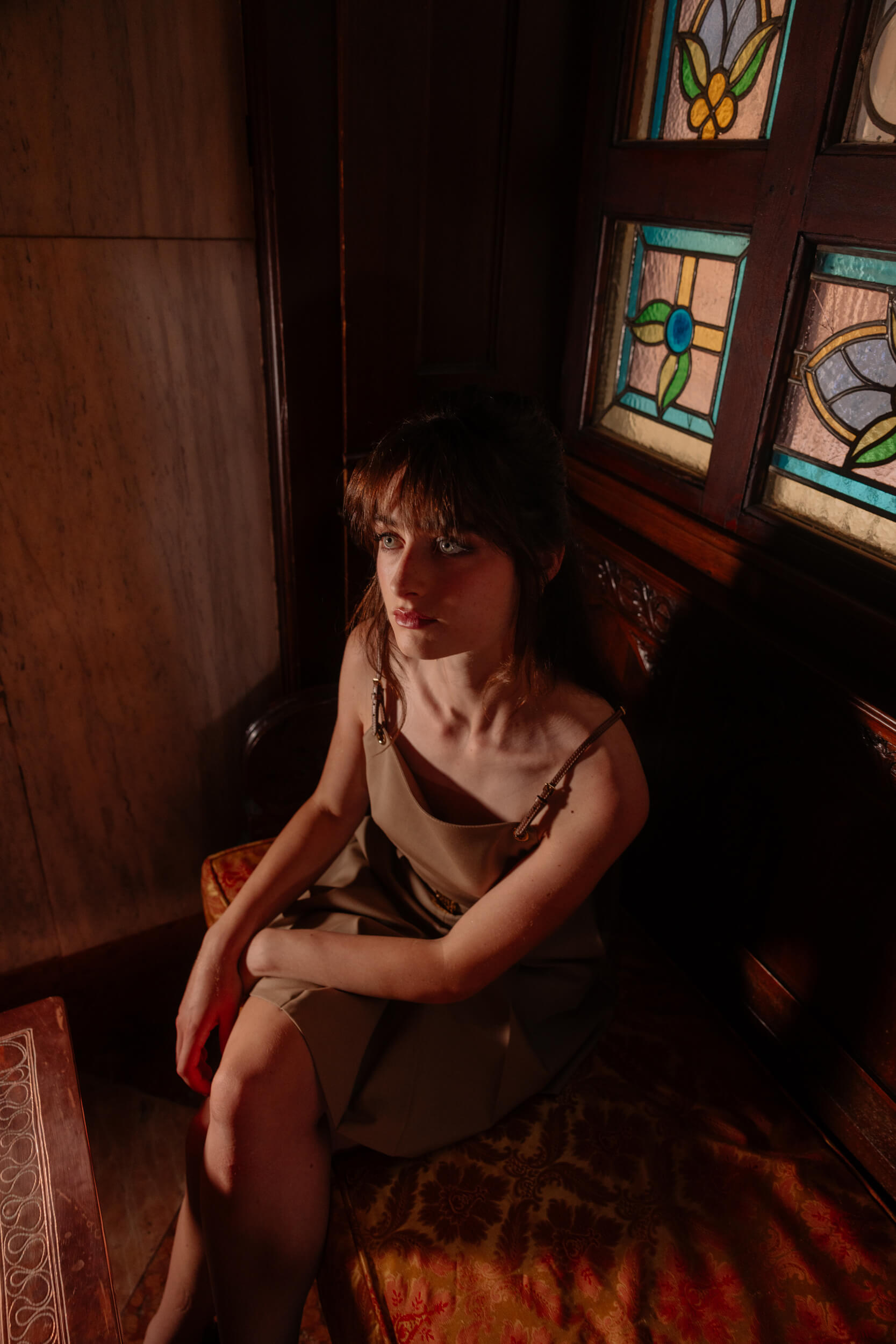
And what’s your greatest act of courage?
Well, taking on challenging characters makes me feel fulfilled at the end of the day. It would be easier to play characters much closer to myself, but I like to think that I’m taking on a challenge and exploring complex characters instead of simple ones.
I think that your career, your path, is really recognizable, you always play amazing characters and take part in amazing projects! You know, when I see a movie and you are in it, I think, “Of course she’s doing it!”, every single time.
I’ve been very lucky with the characters I’ve been given.
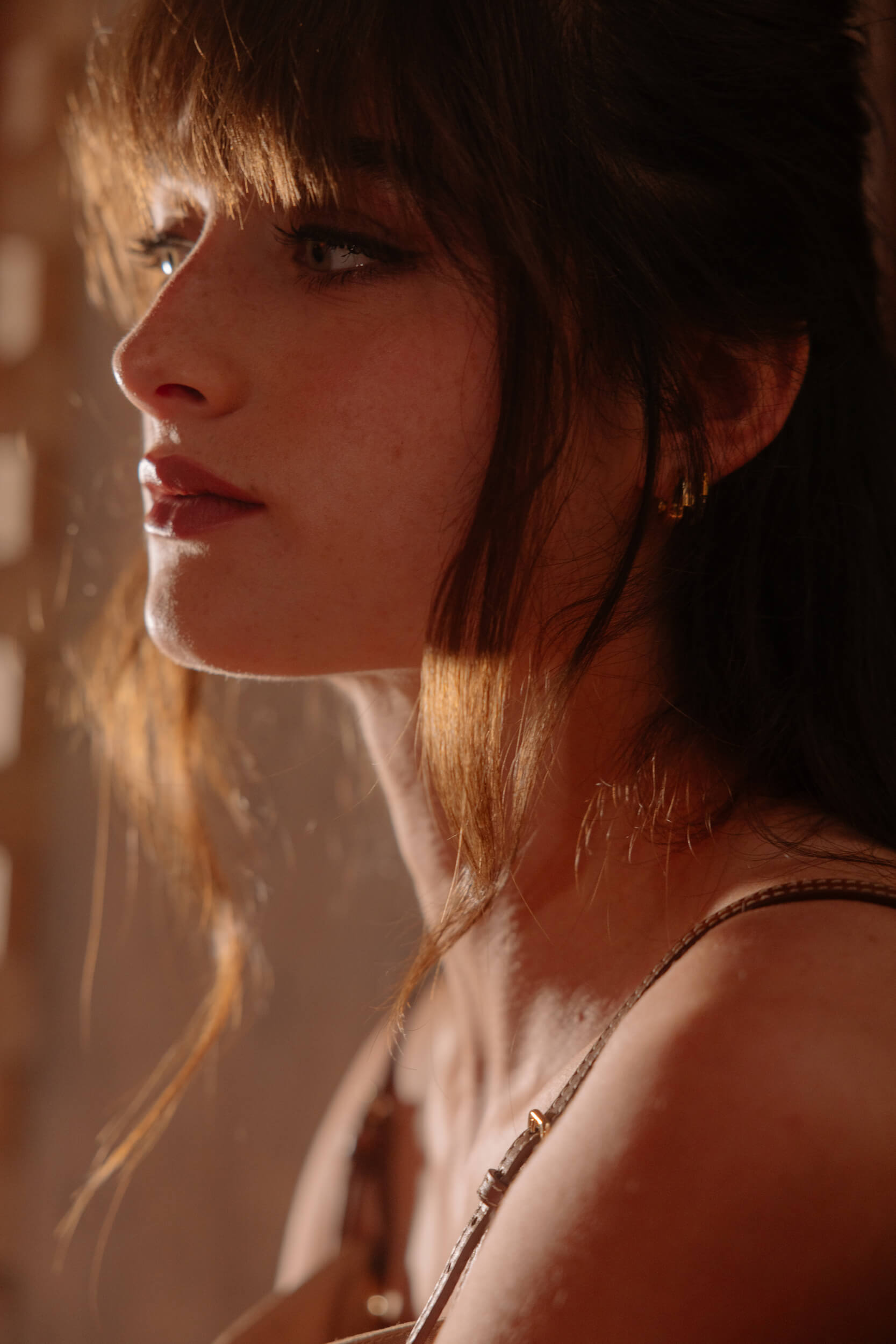
“Taking on challenging characters makes me feel fulfilled”
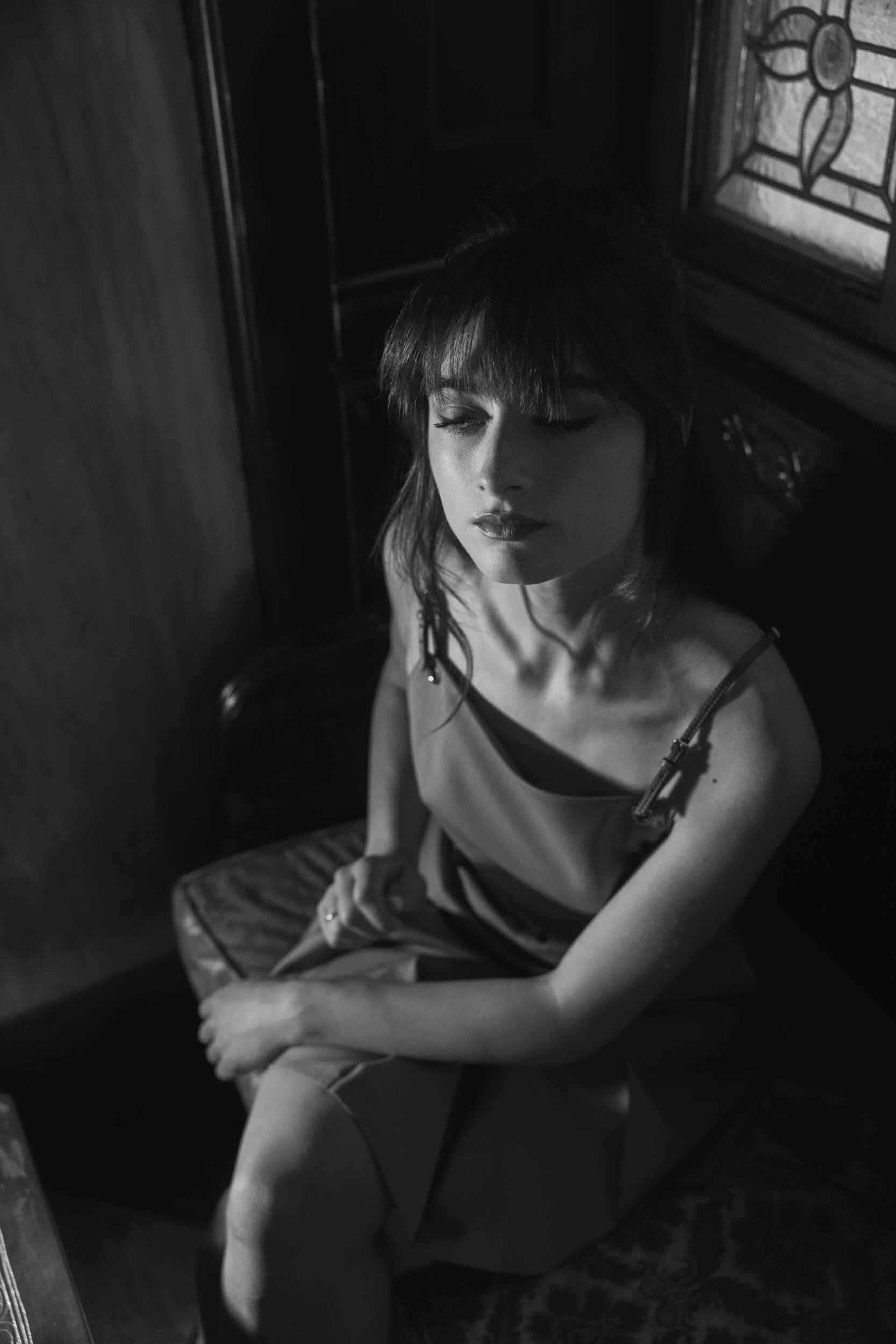
But you also have to make the right decisions, right? And you are.
Yeah, I would love to just do anything and everything but sometimes you have to be picky because then if you do something that you would just enjoy, that’s all people can see you as for ages and then you can’t get out of the rhythm of playing that character. But having said that, it’s really not strategic, it’s literally just the ones I love who turn out to be good characters.
What’s your happy place?
Back at home in the green land of England. Or on the opposite scale, on a set. I’m so happy on a set, it’s the best part of a film for me, I love it, it’s very glamorous. When I’m on set in costume, that’s my happy place, I could do it forever.
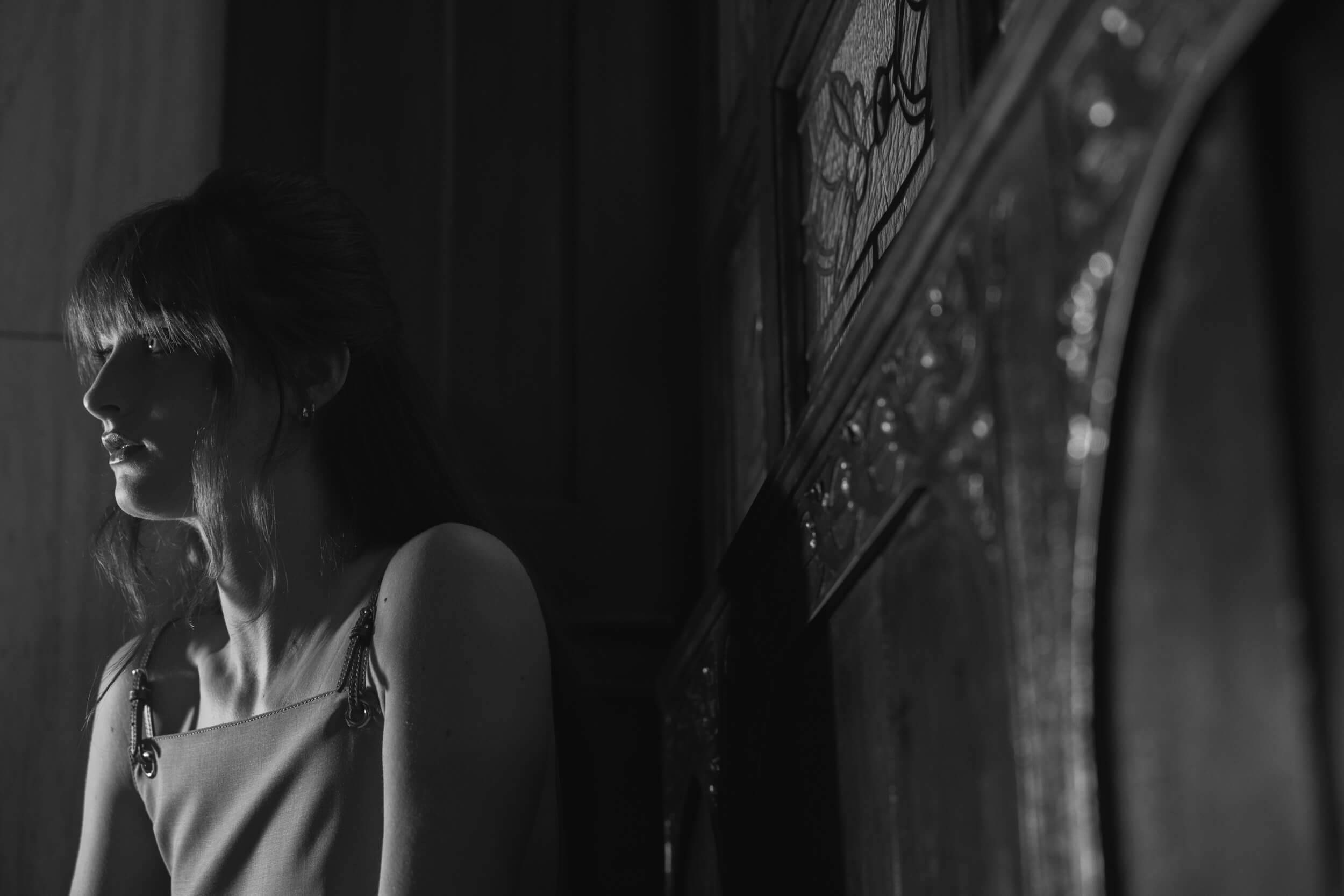
Photos&Video by Johnny Carrano.
Hair by Carlos Ferraz.
Makeup by Emma White Turle.
Location: Hotel Danieli.
Thanks to Miu Miu.

